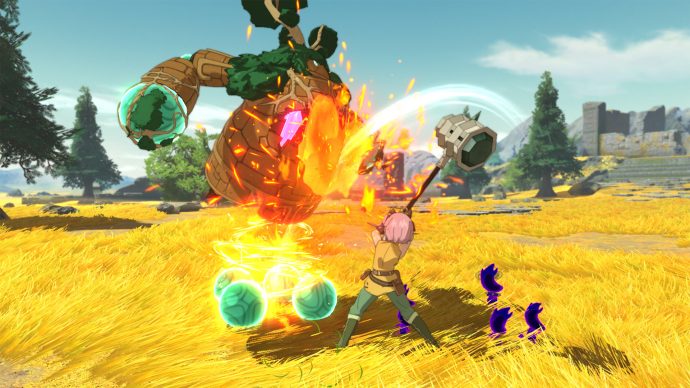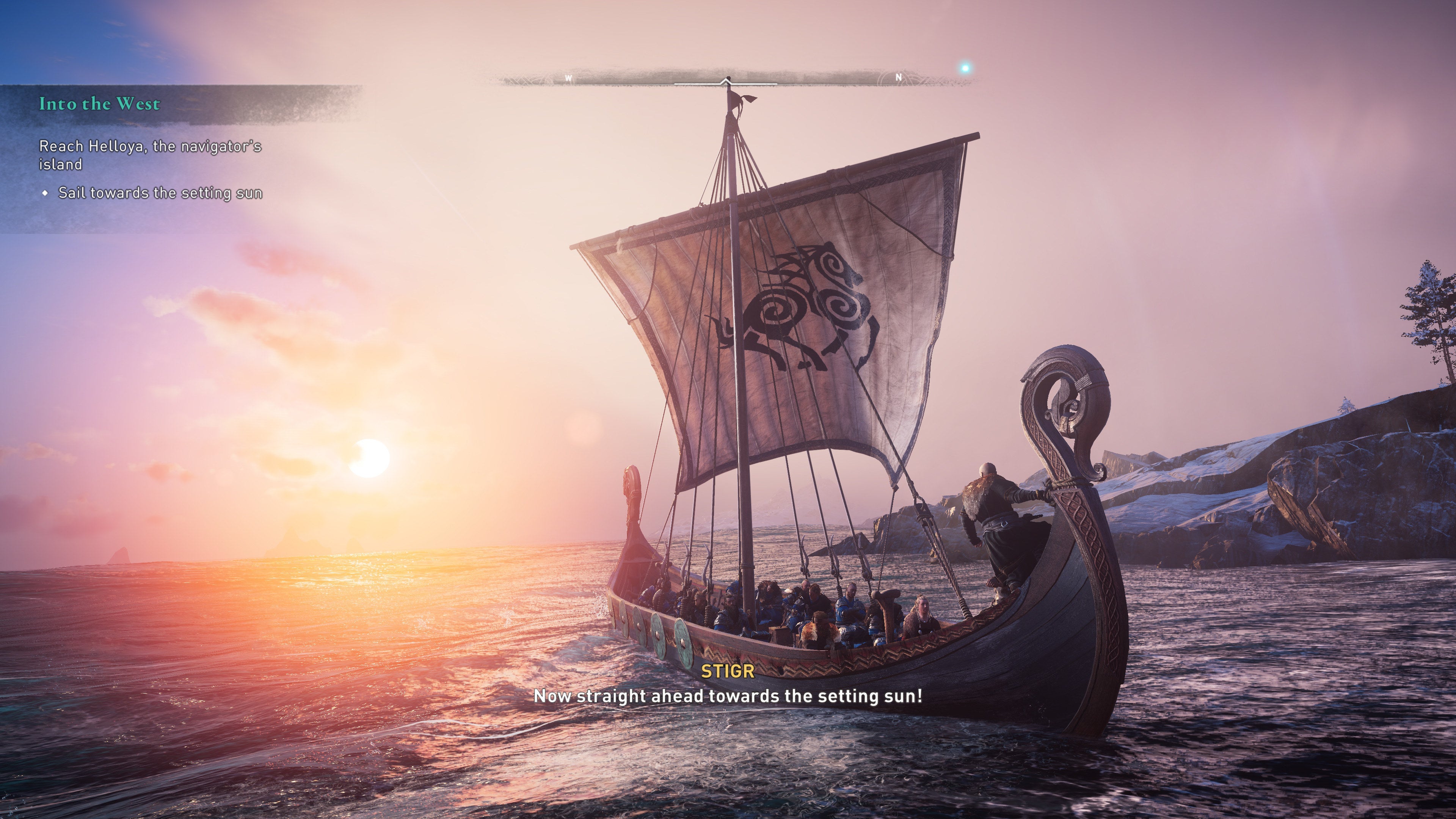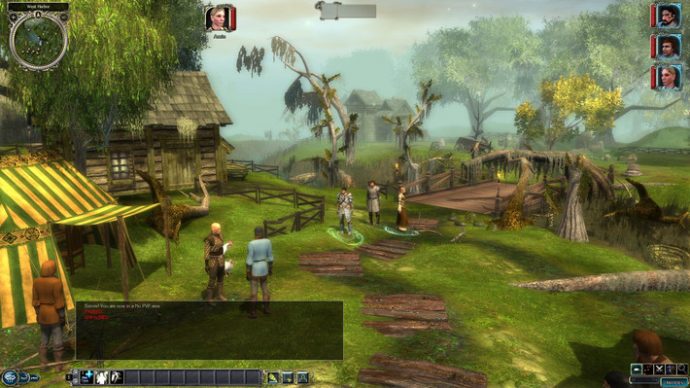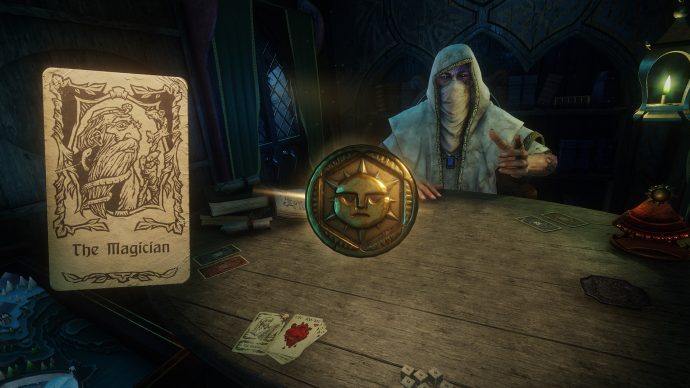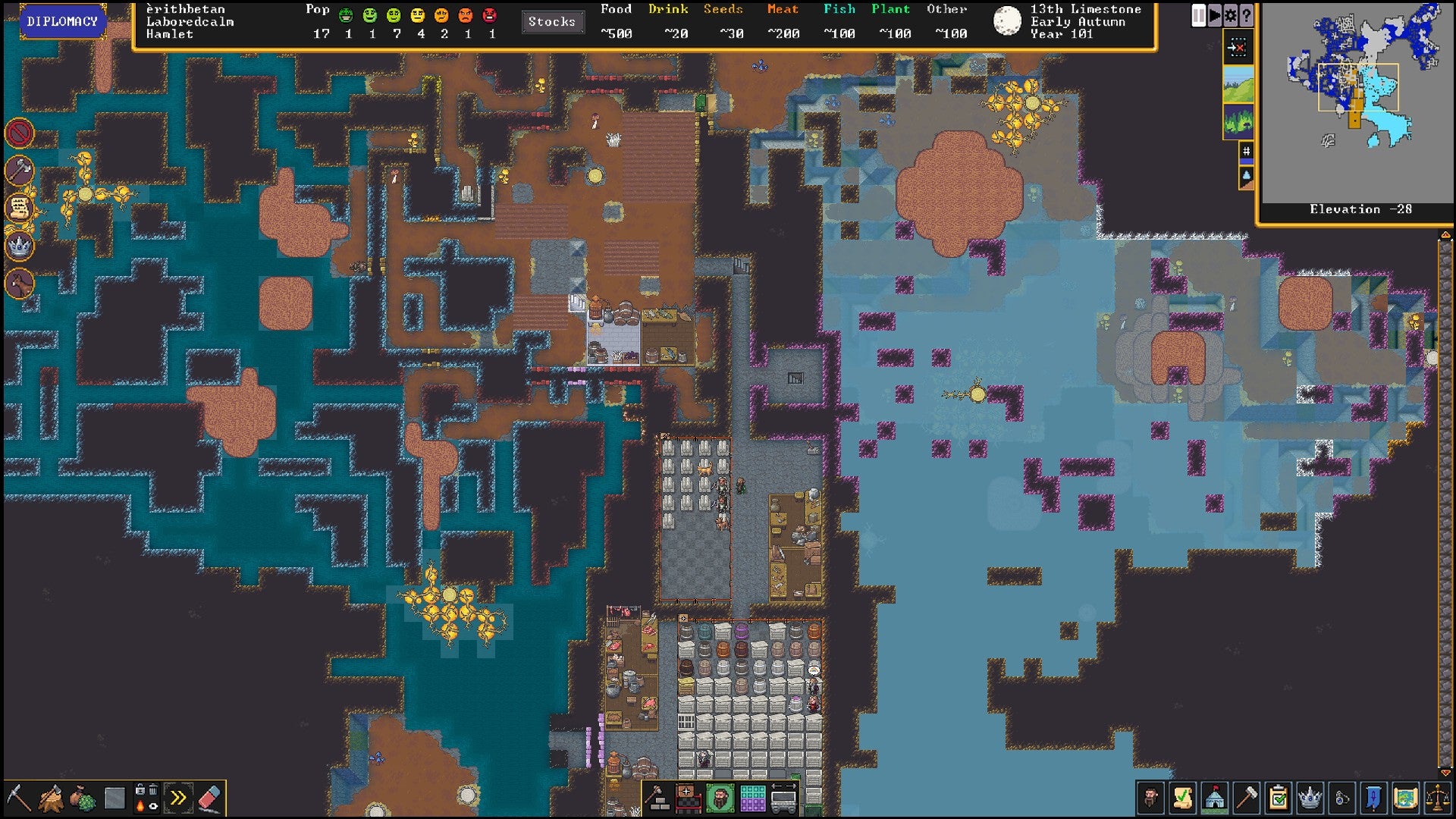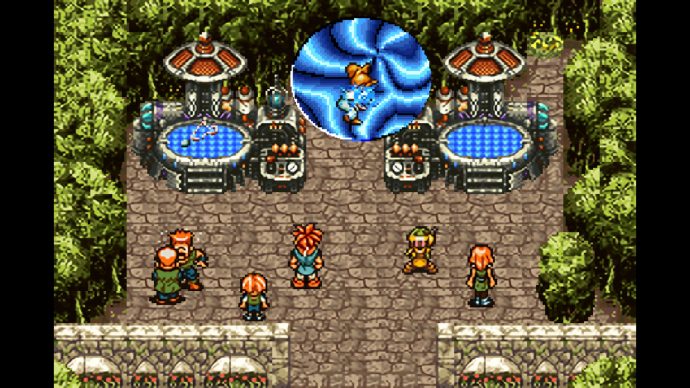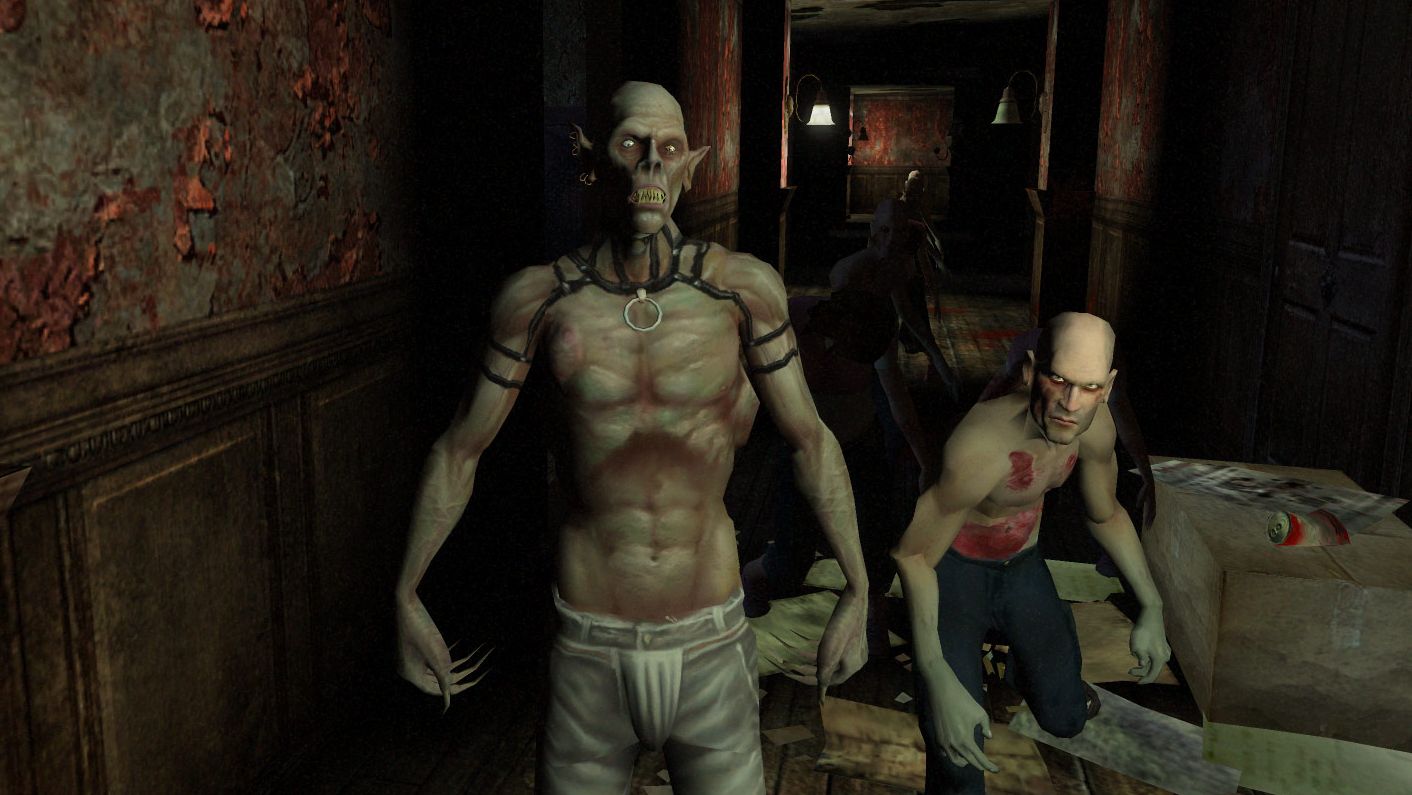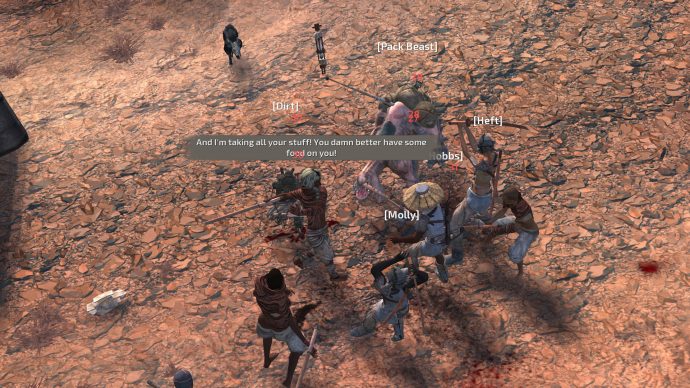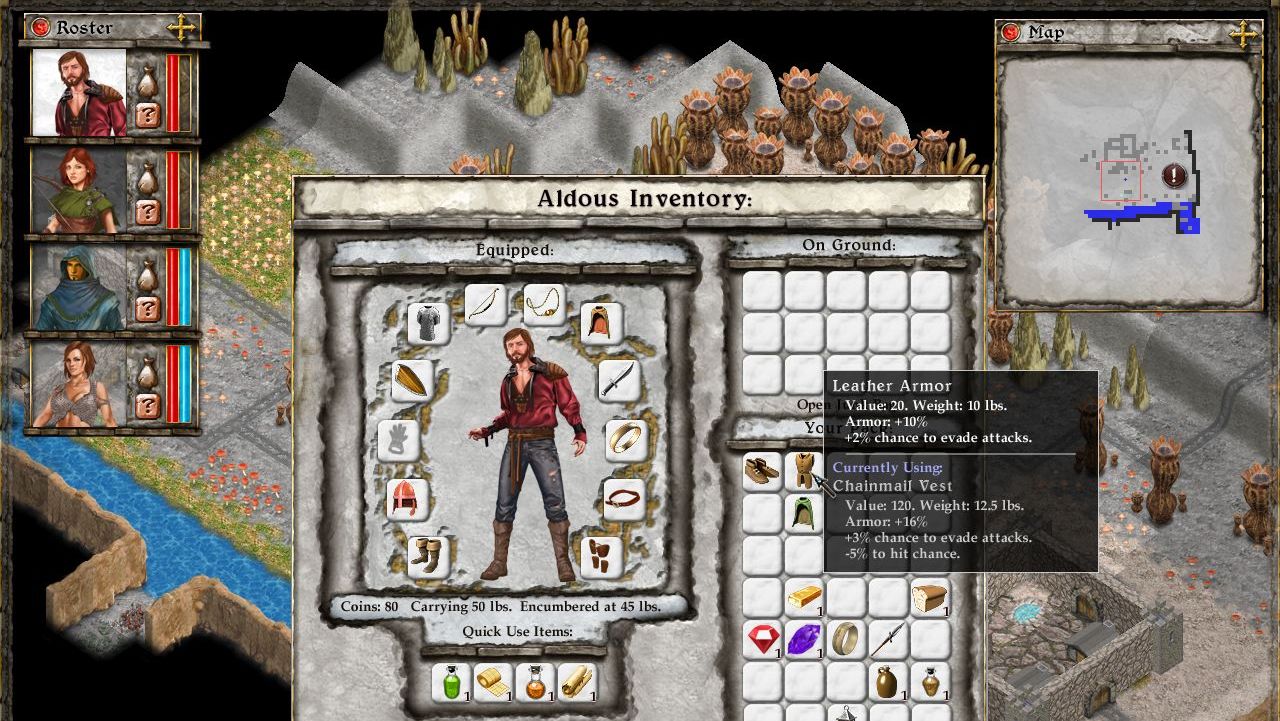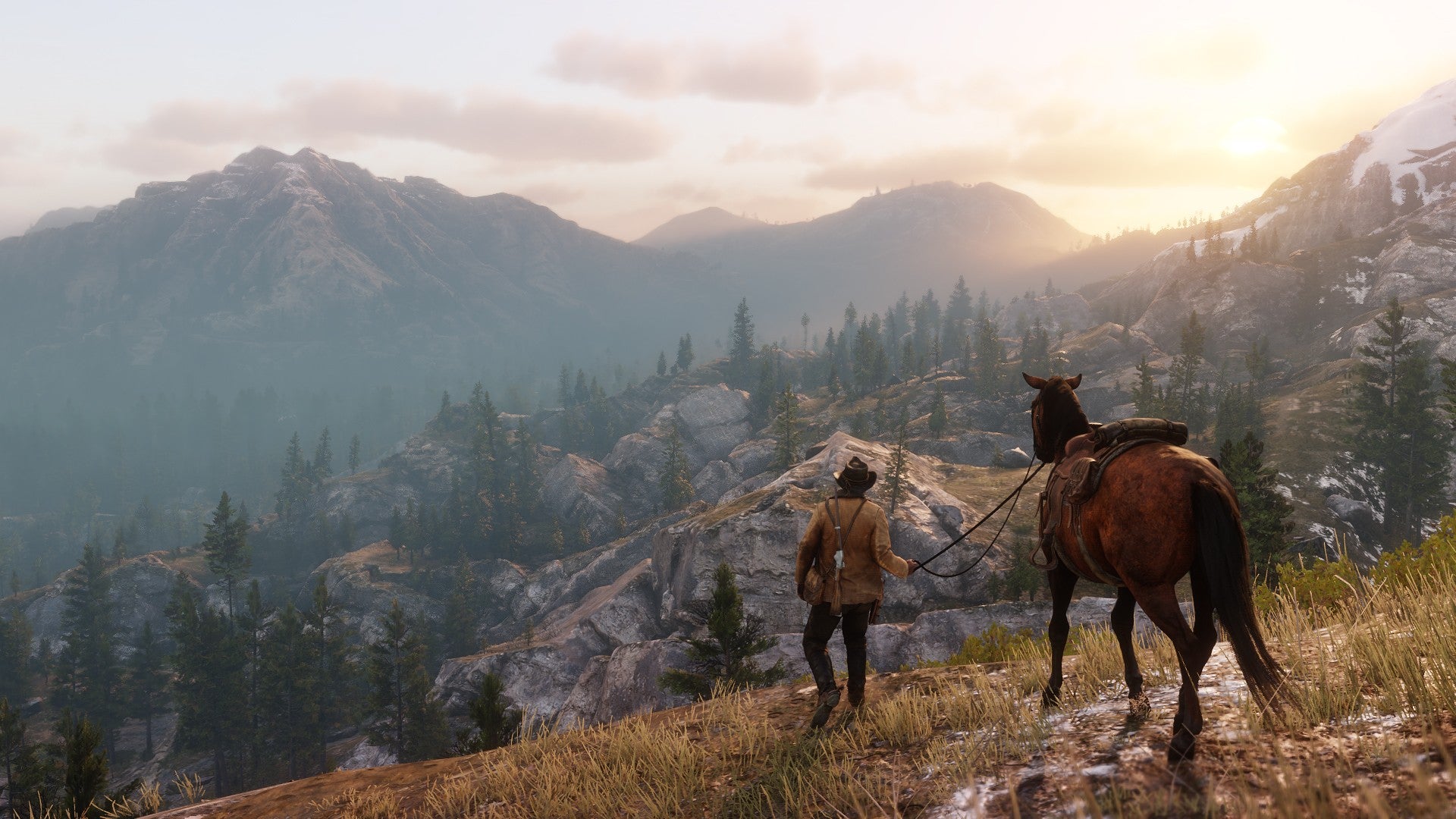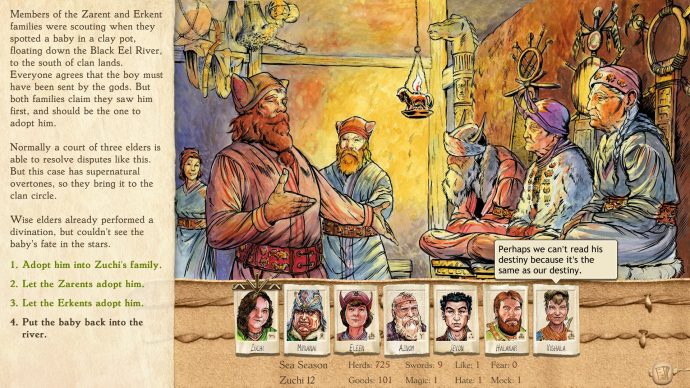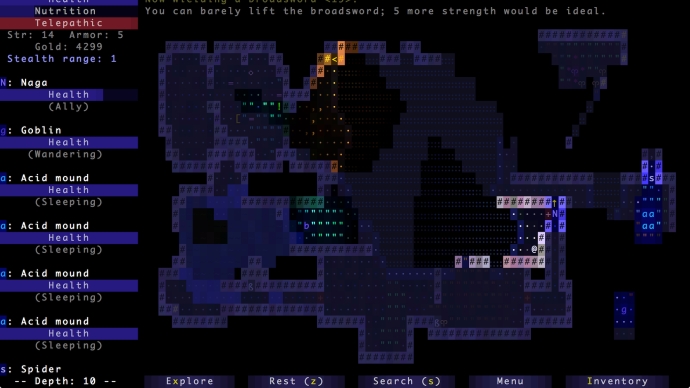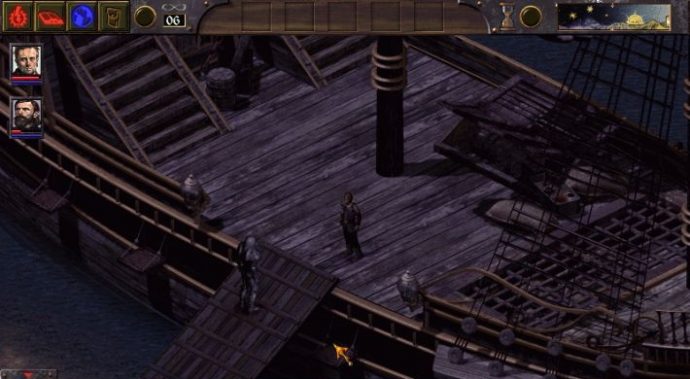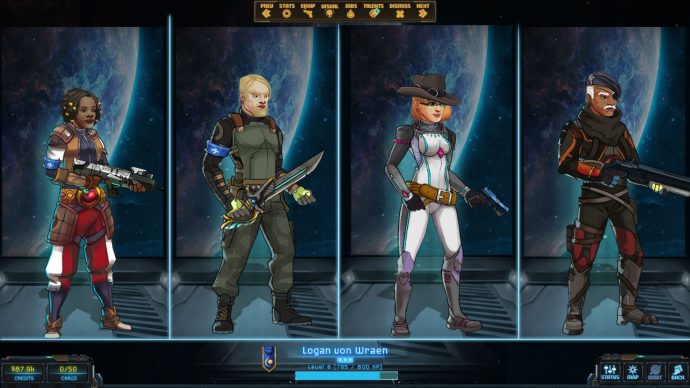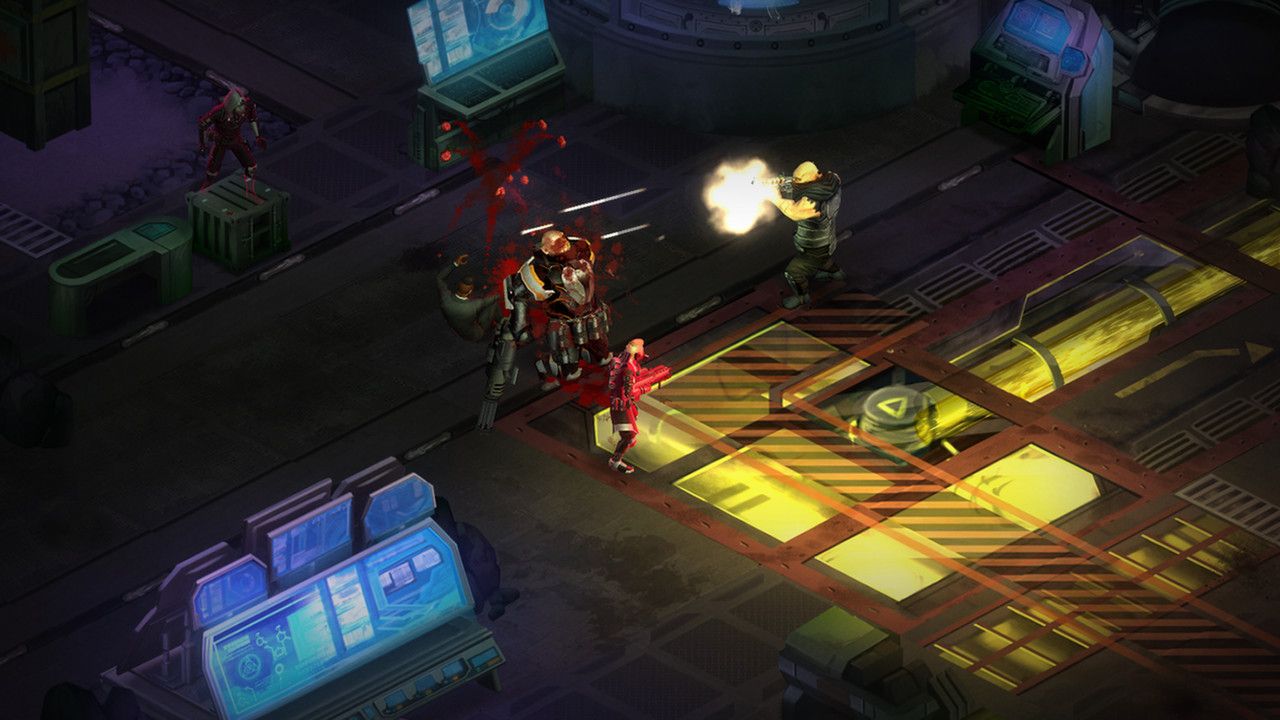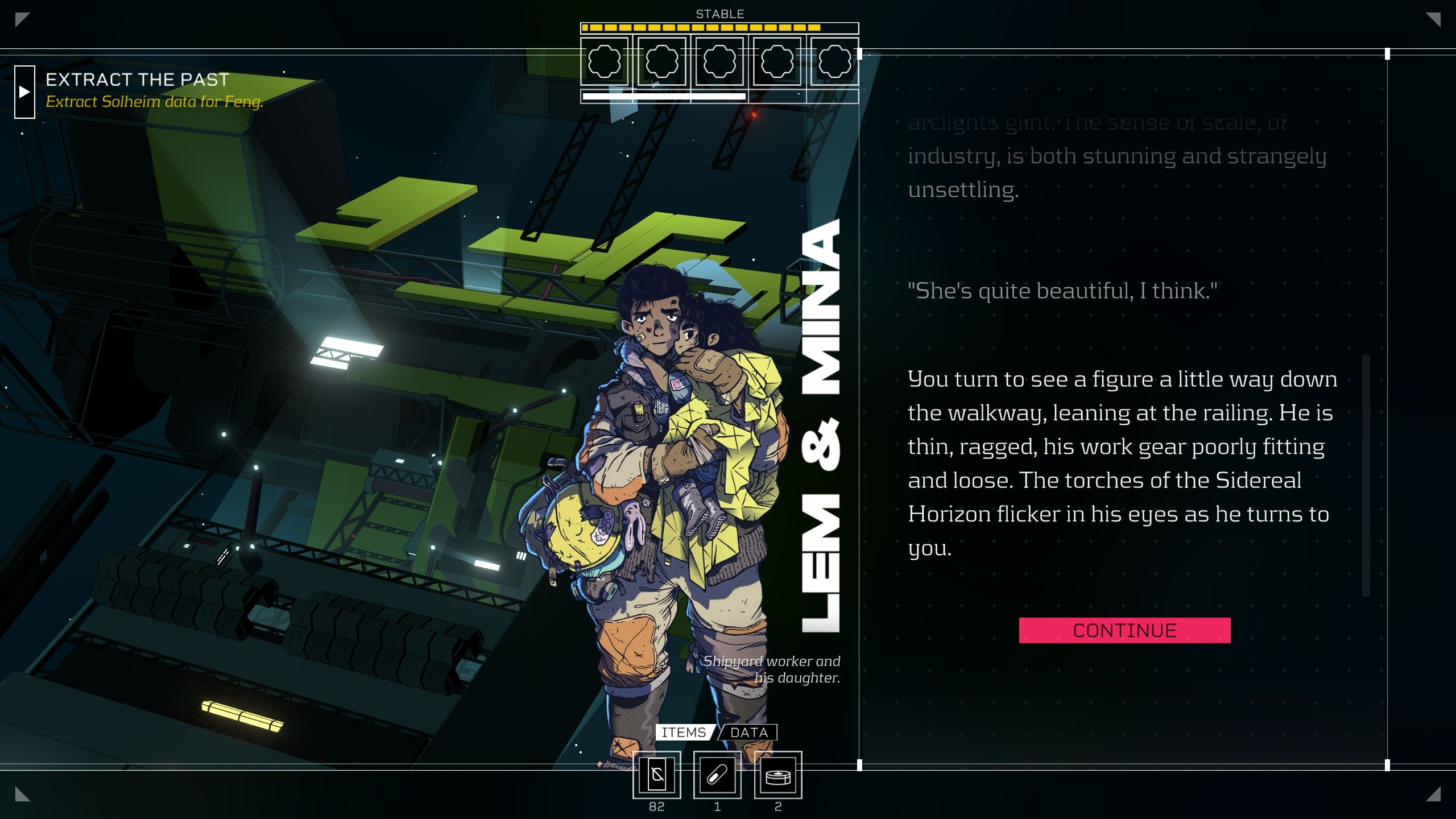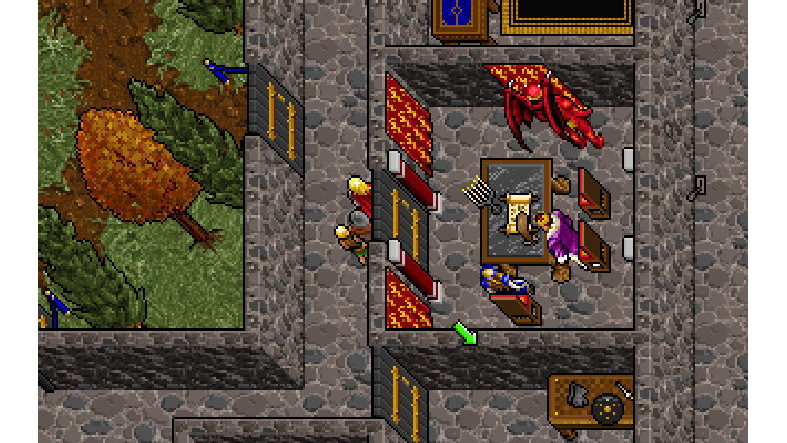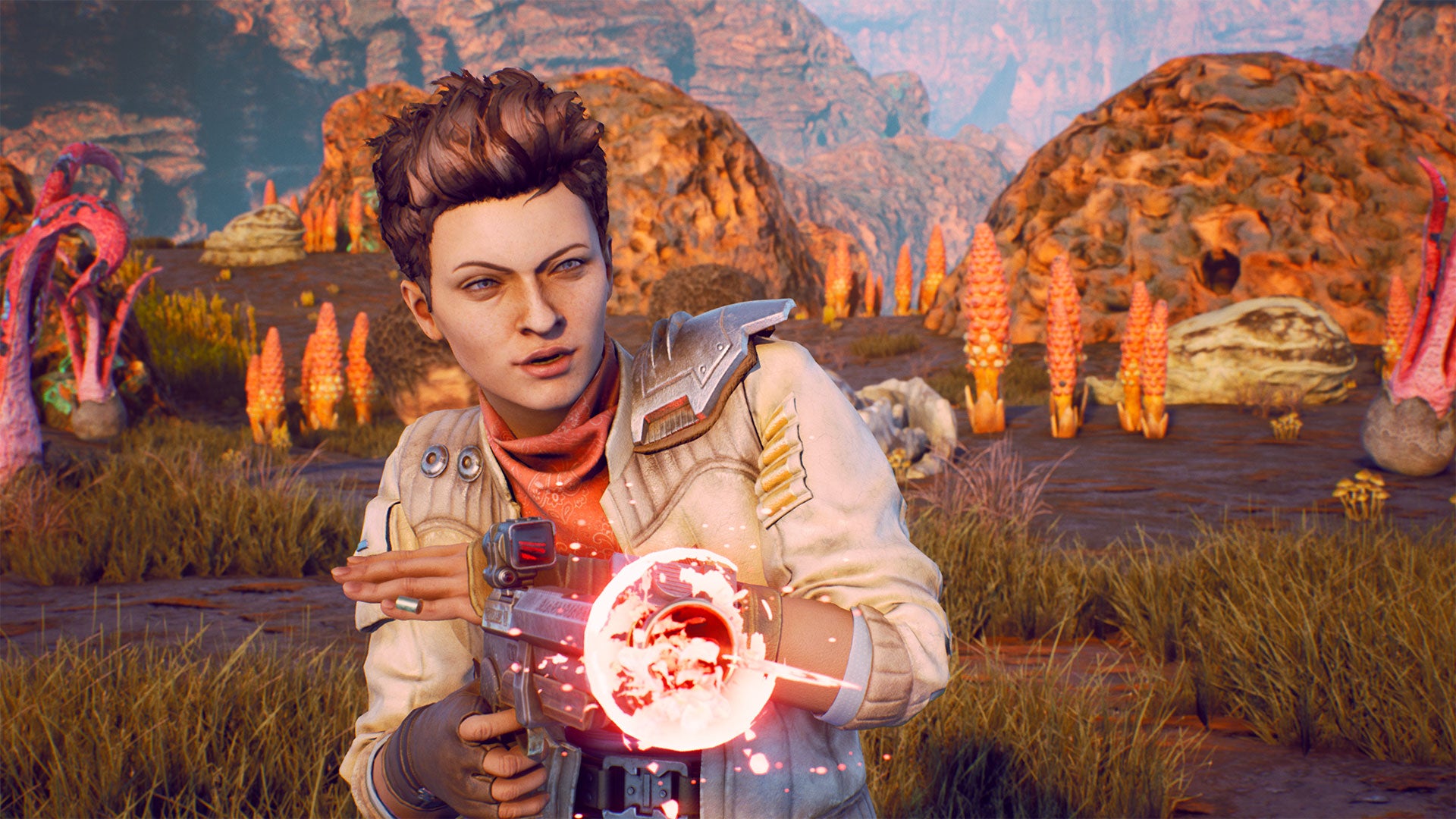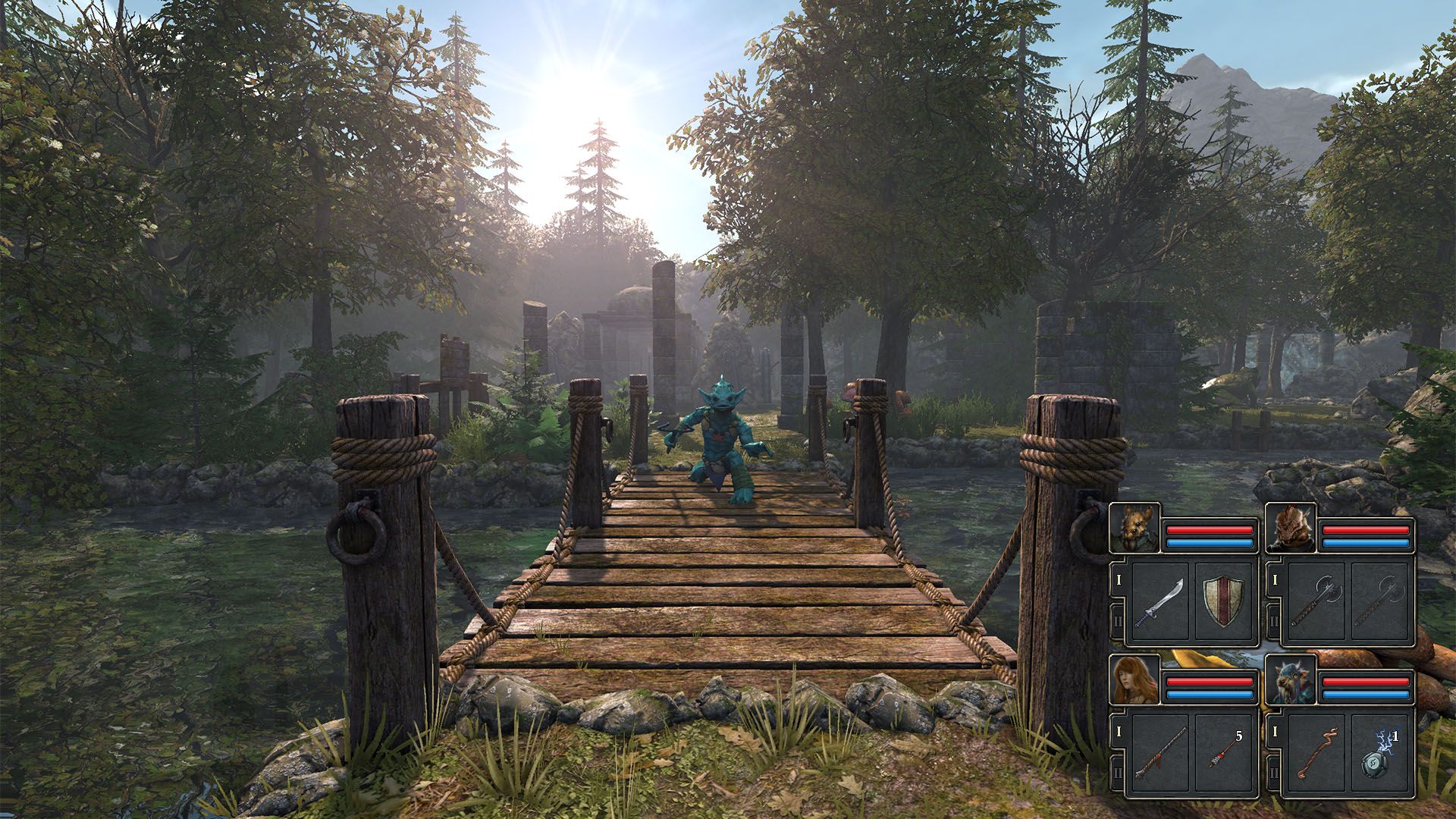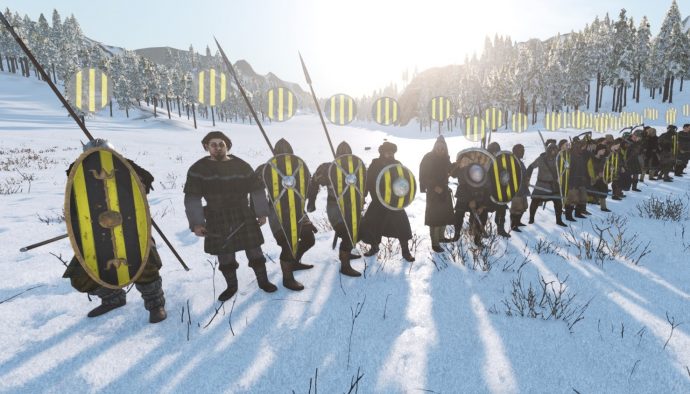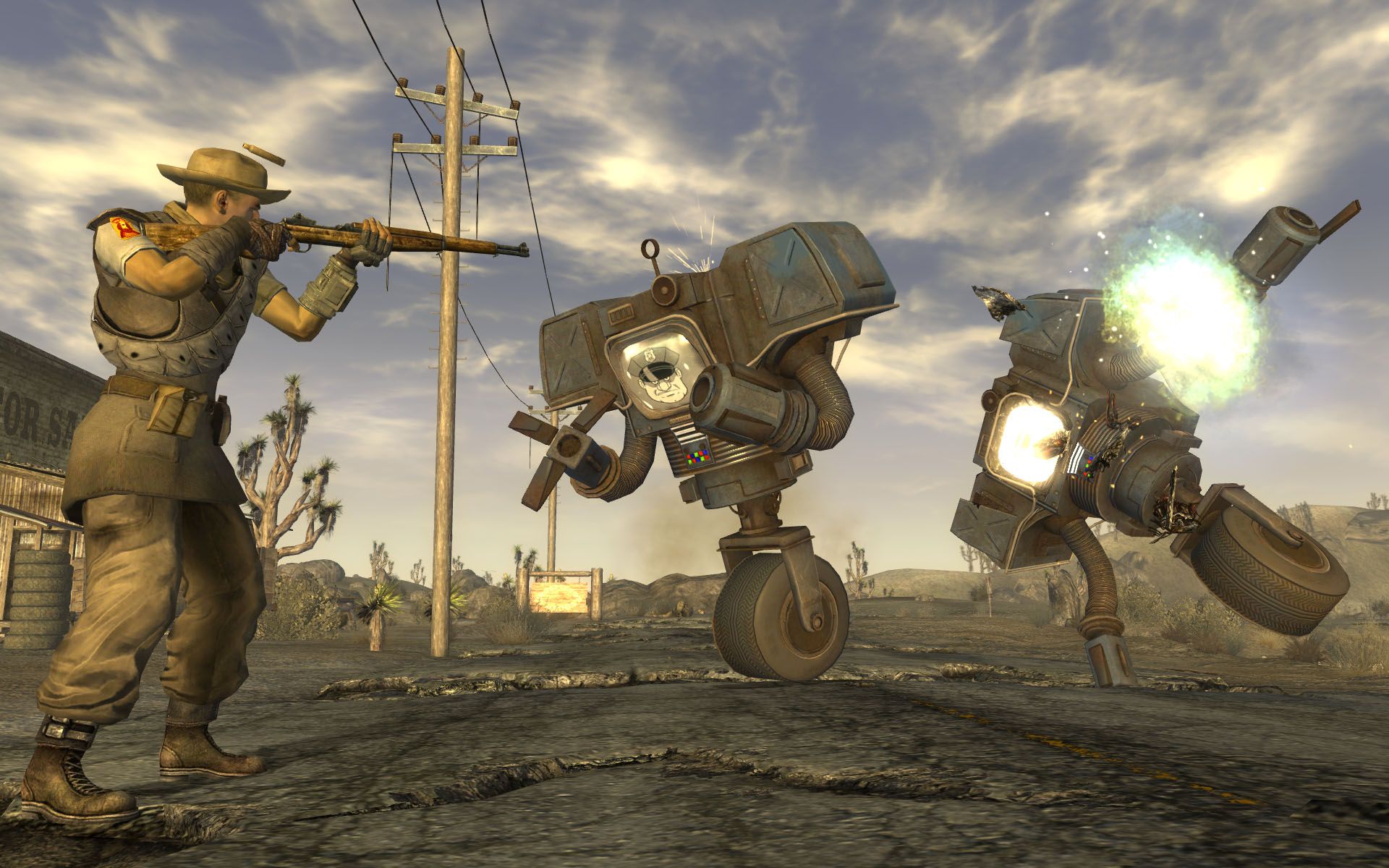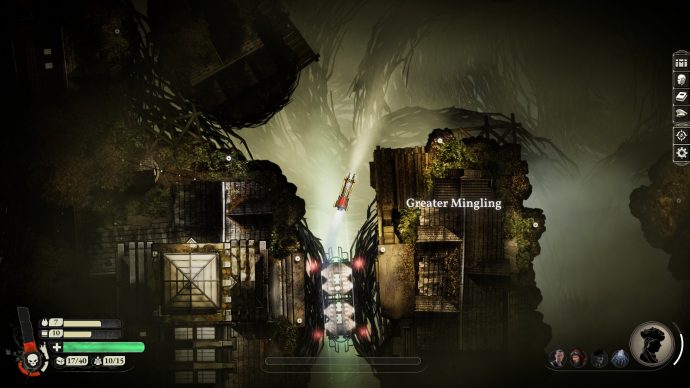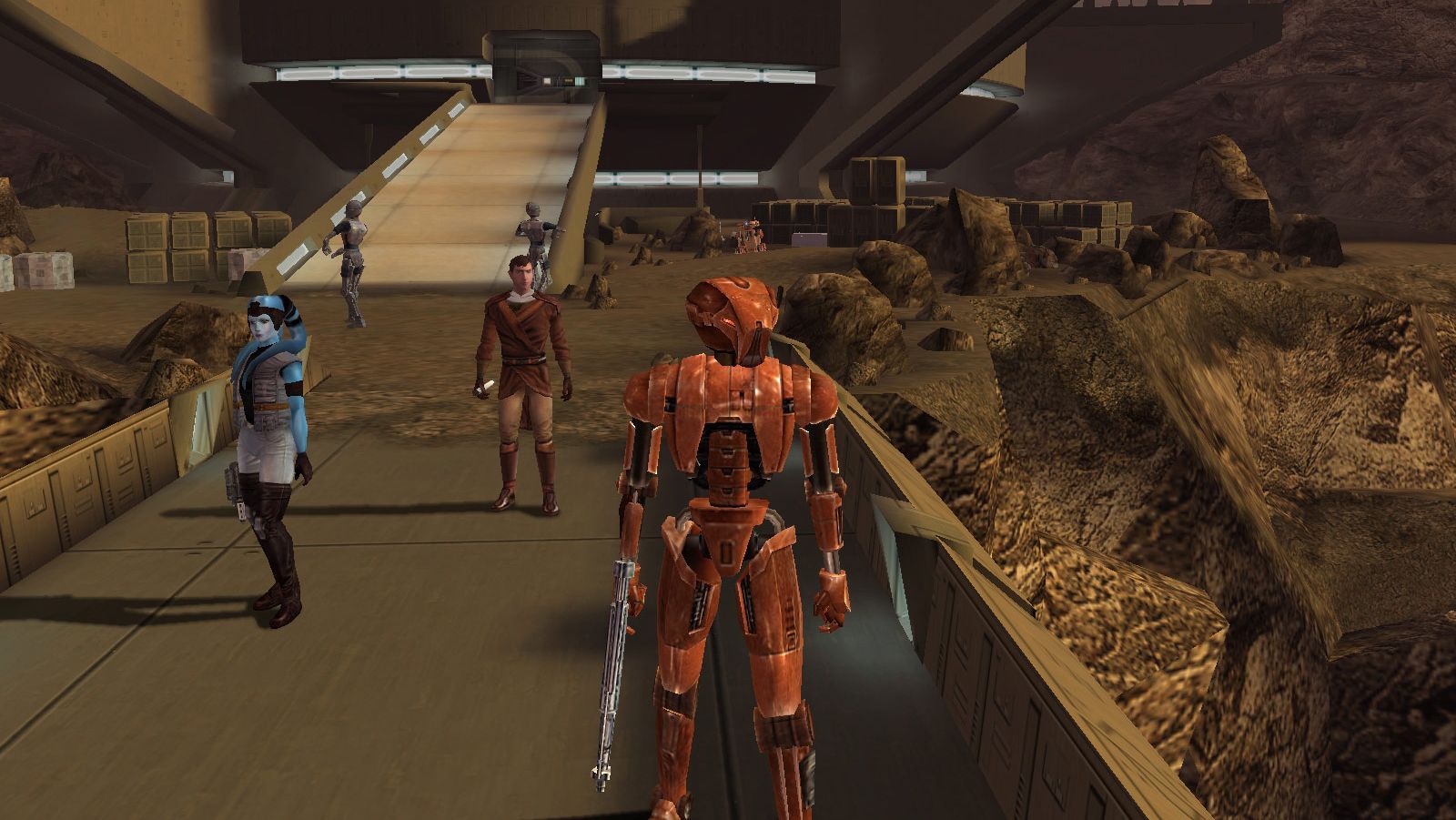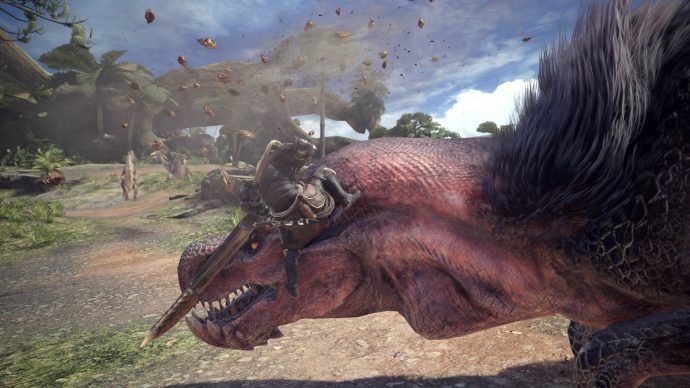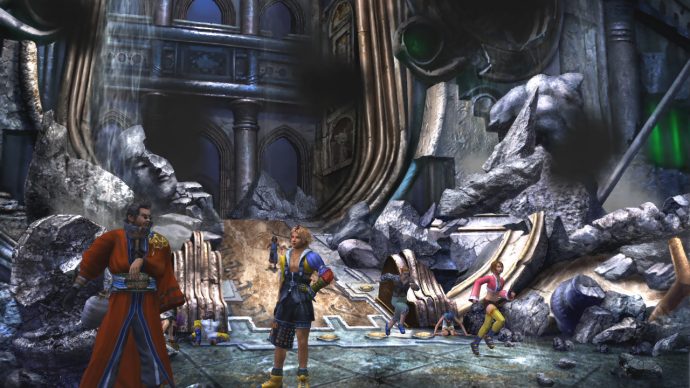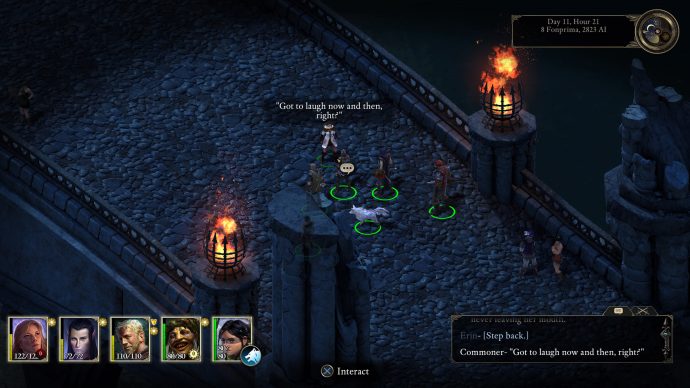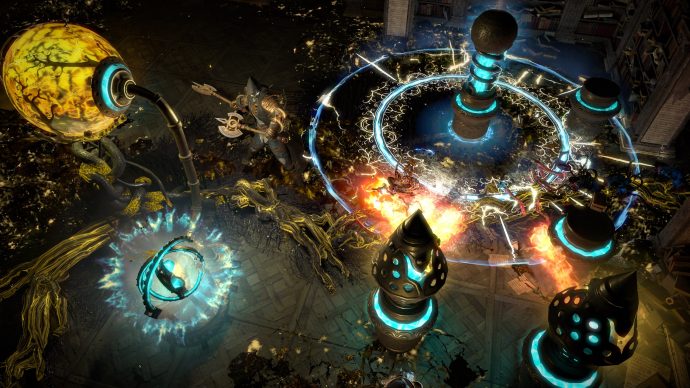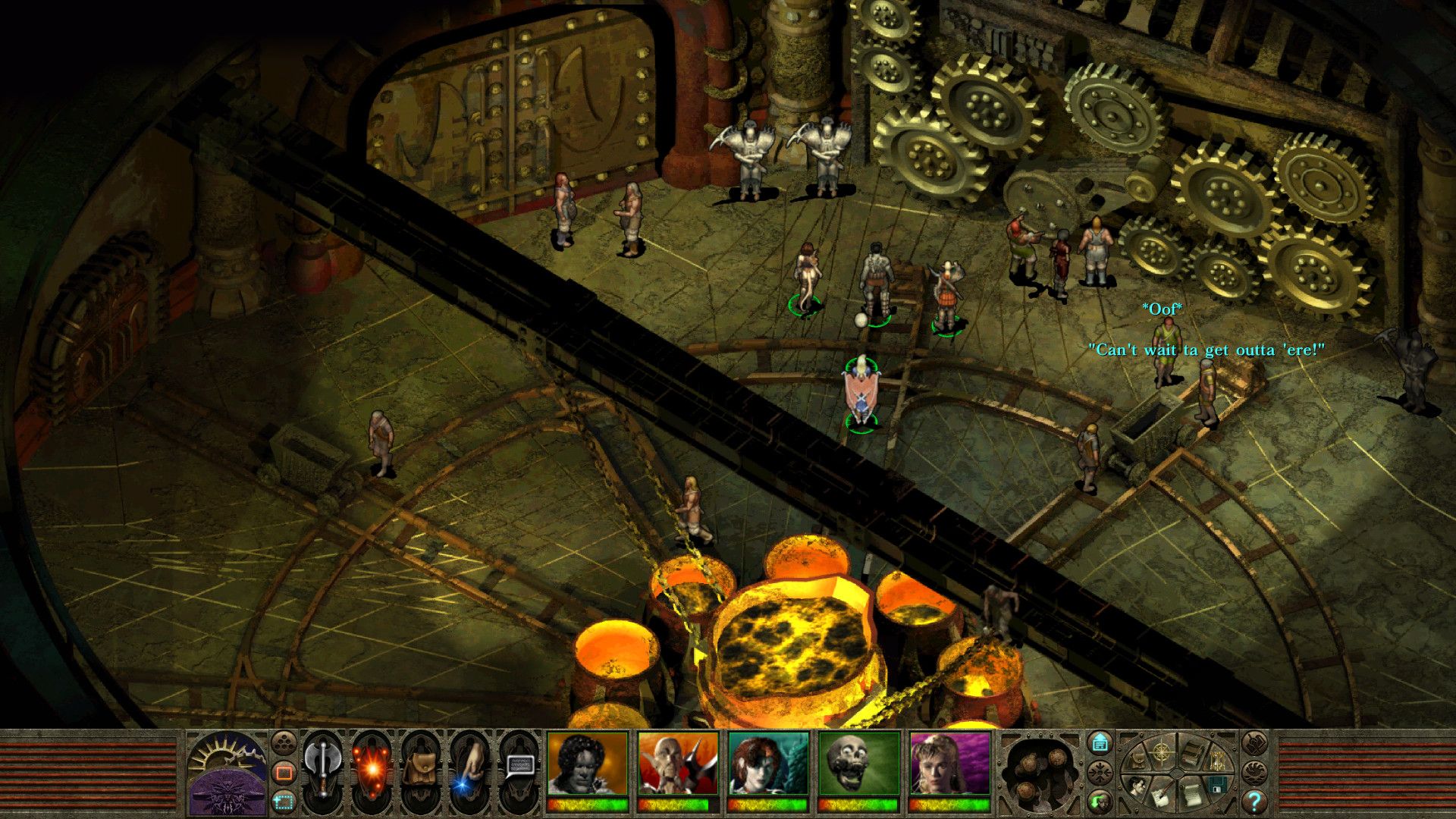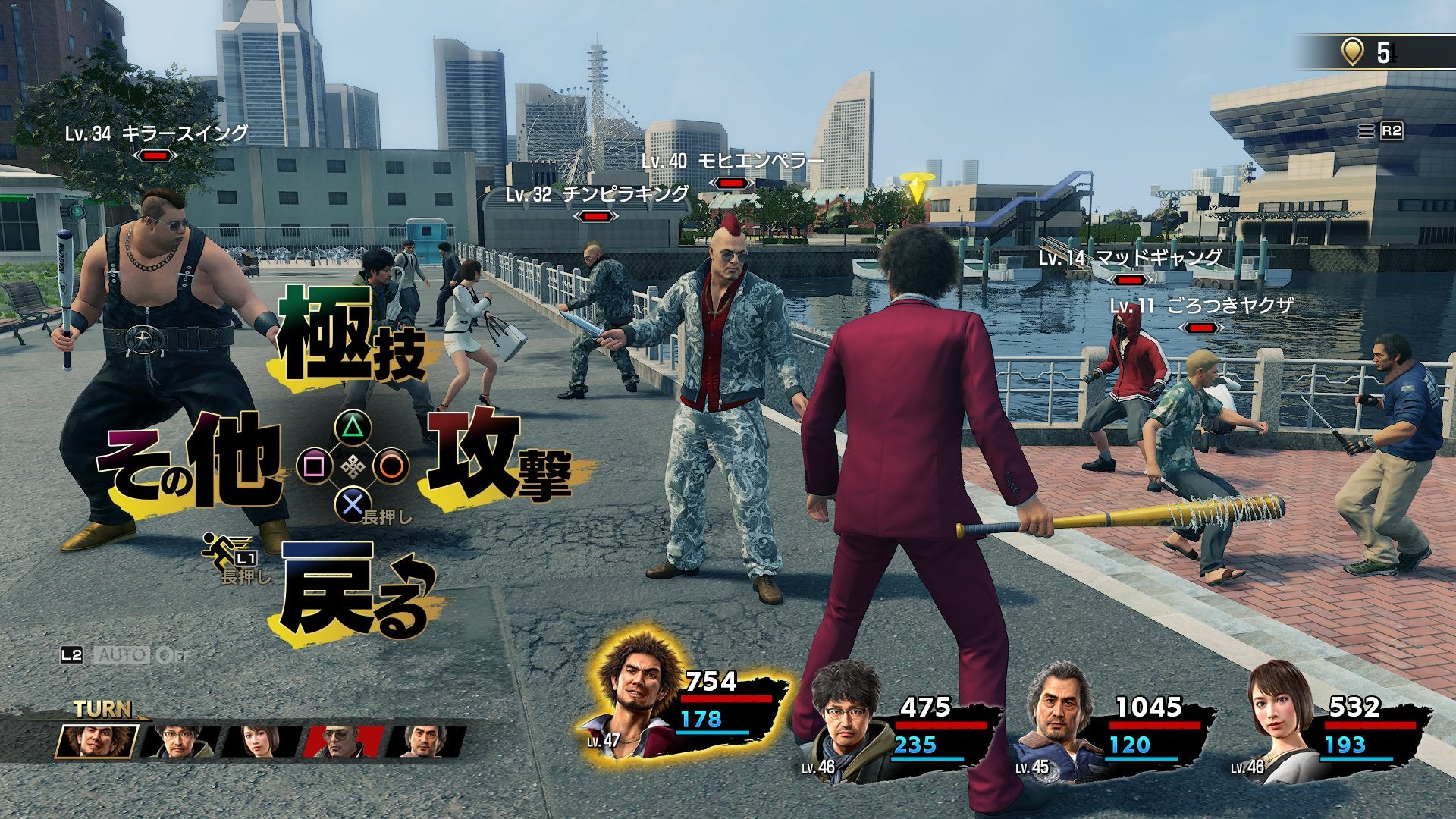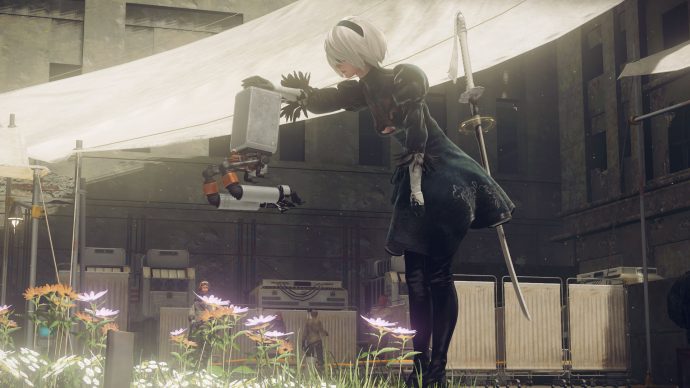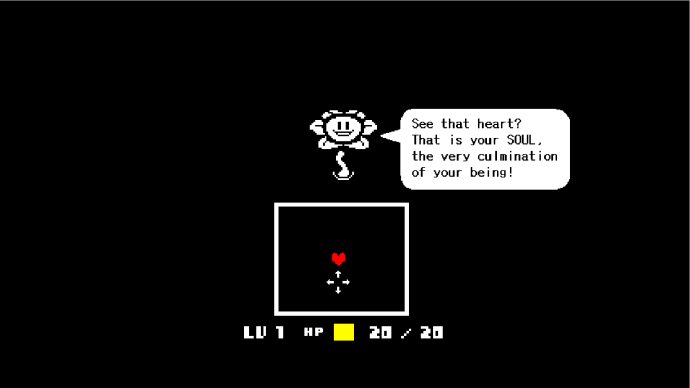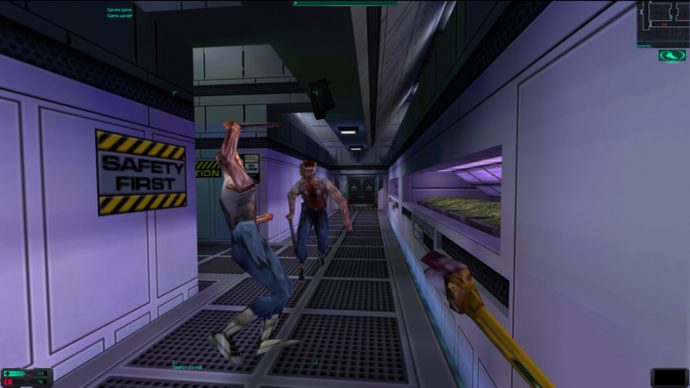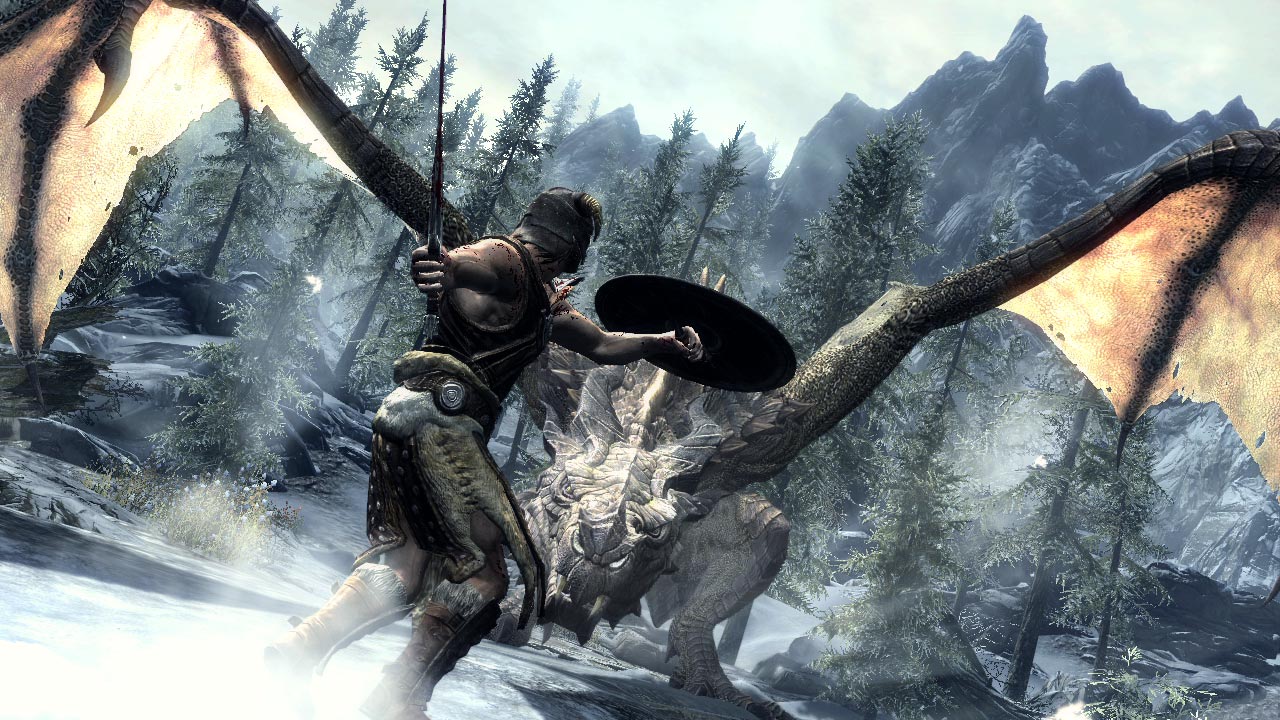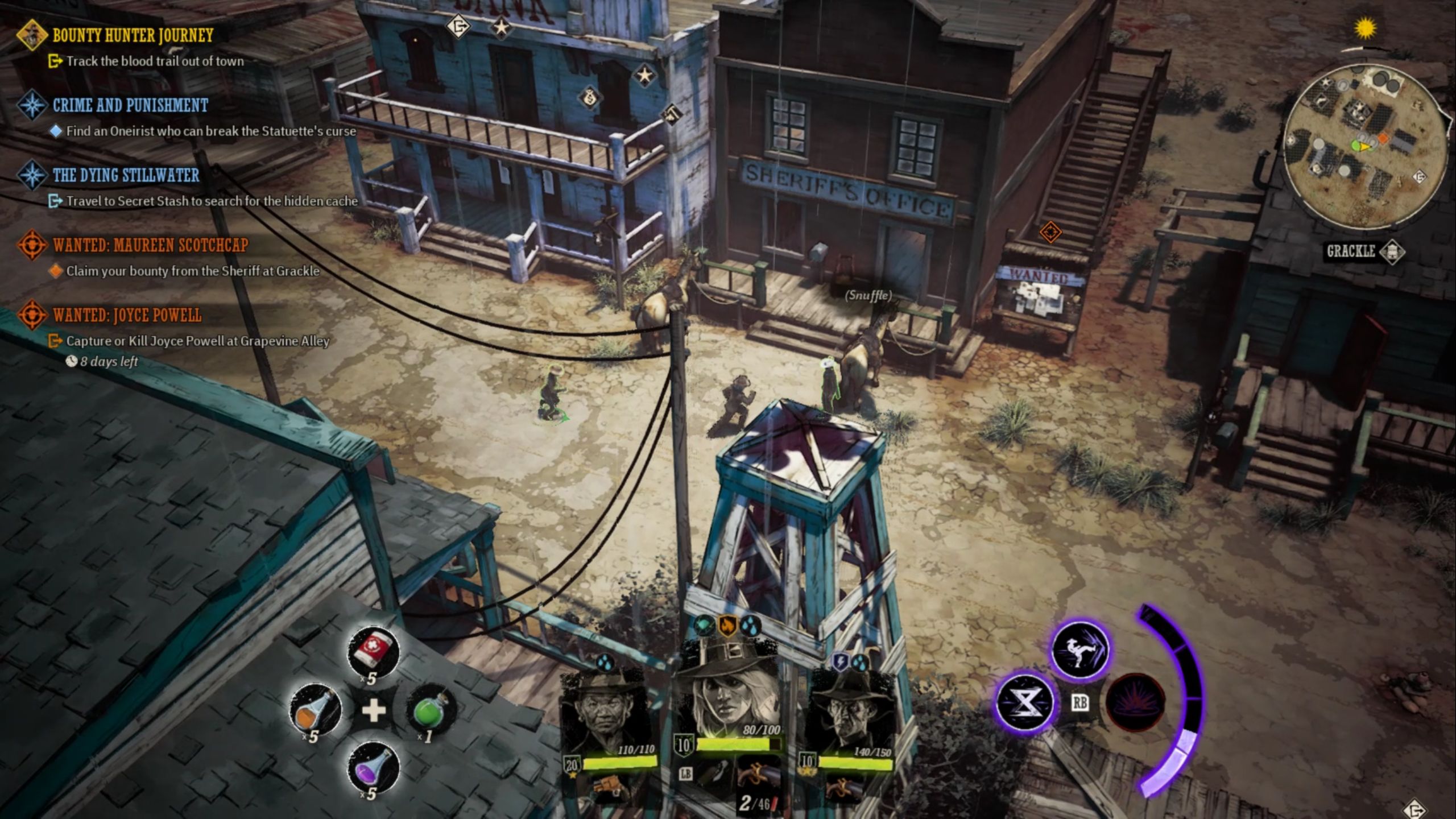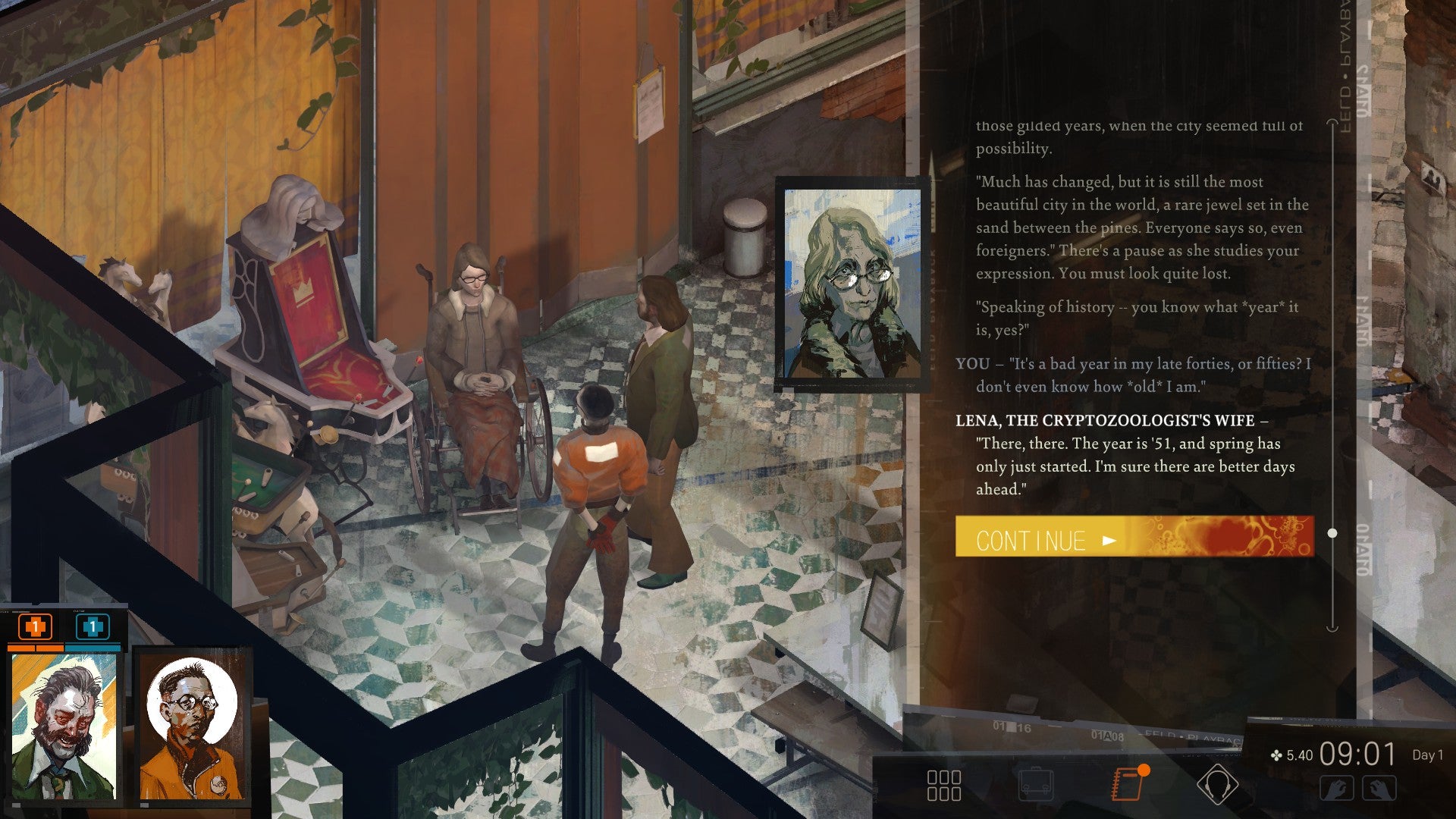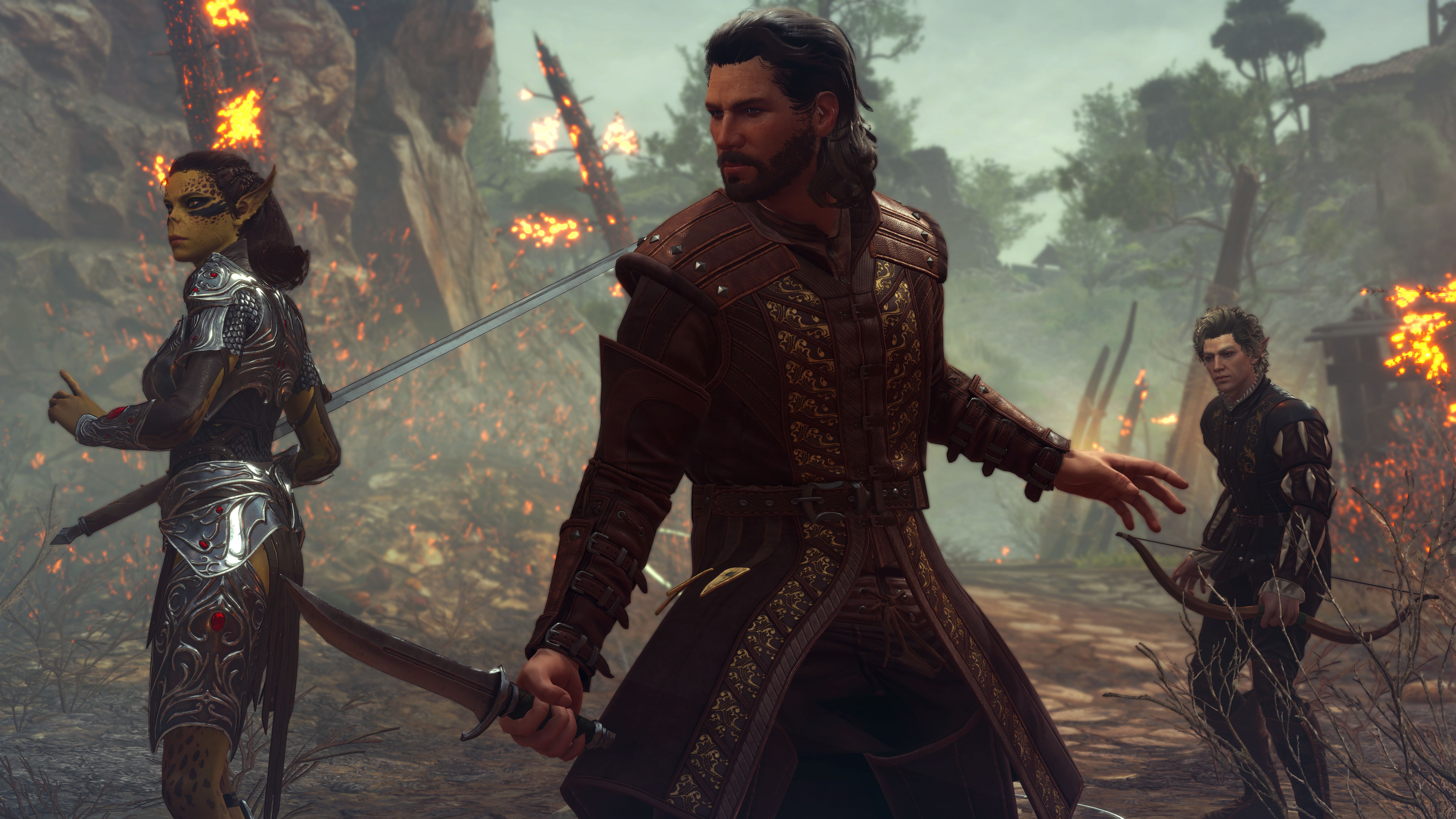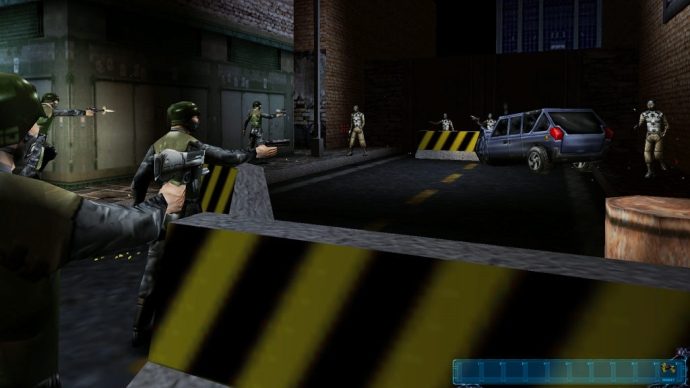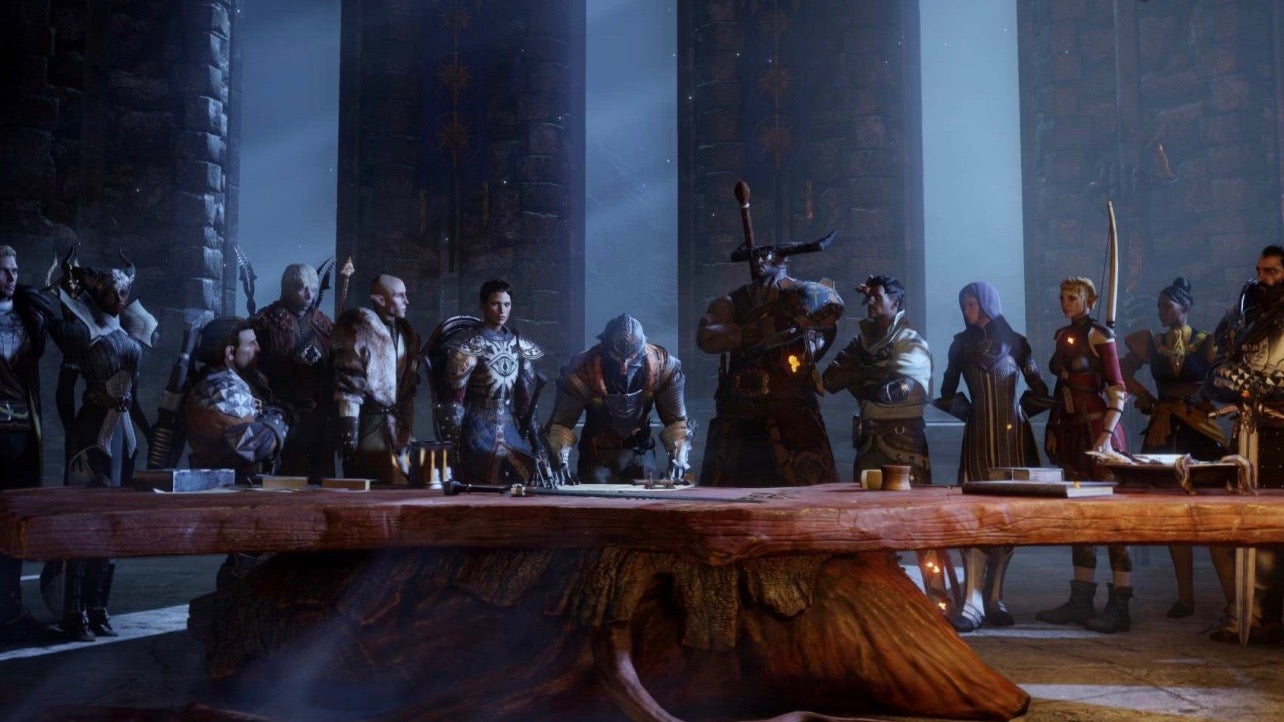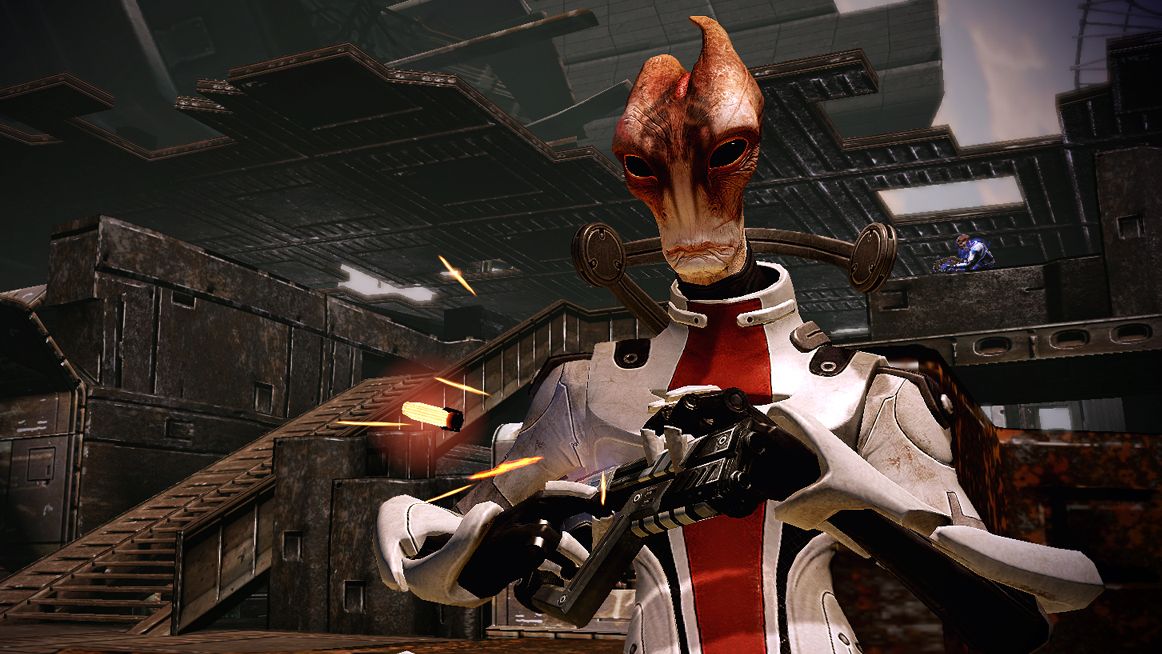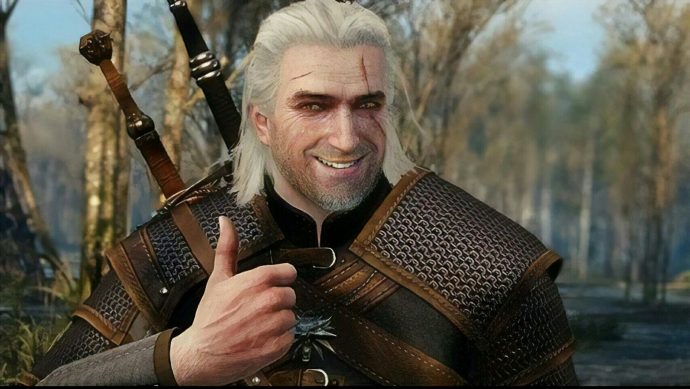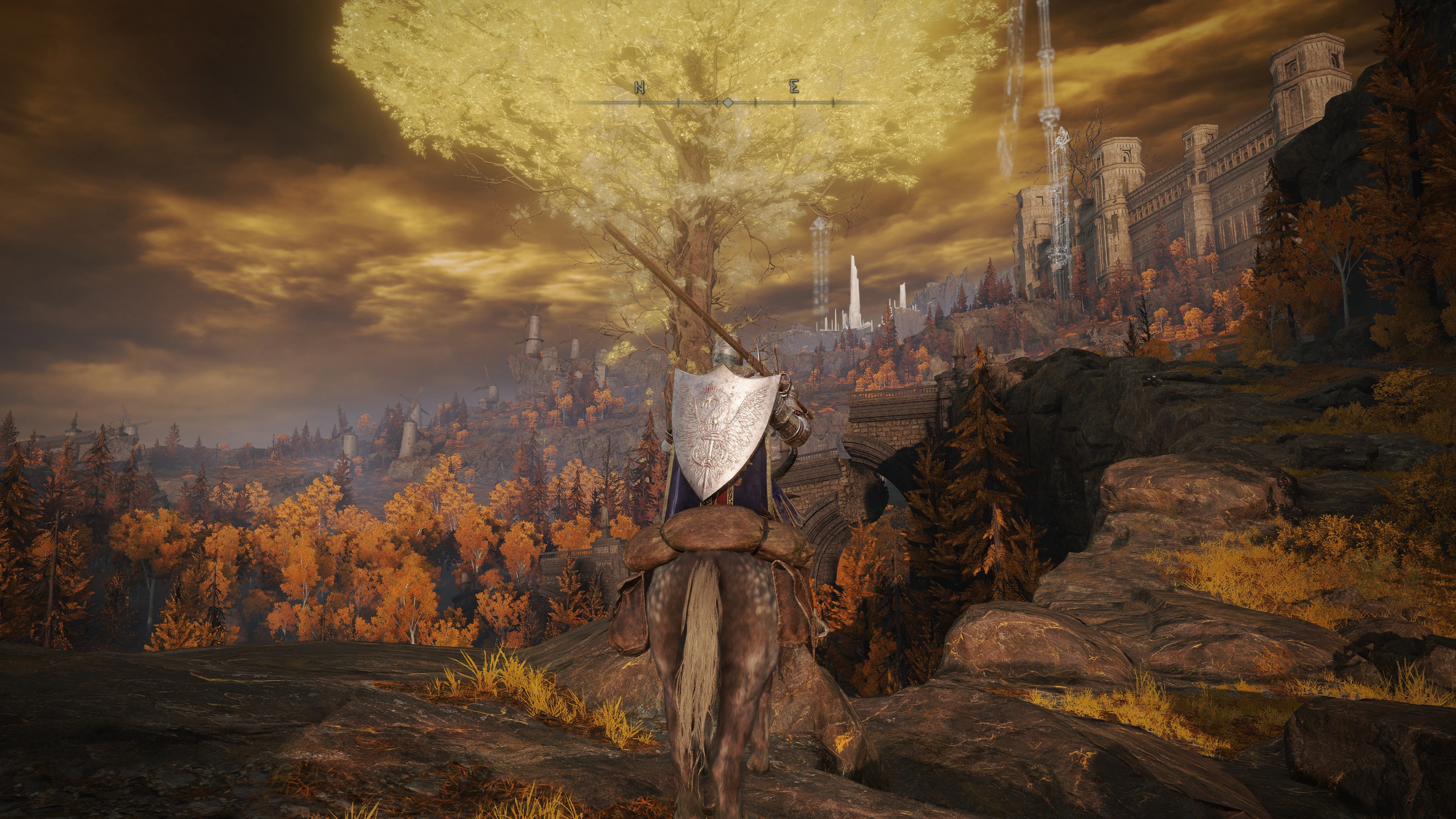We’ll keep it updated, too, as this year is set to bring us Starfield, and Dragon Age 4 is somewhere on the horizon. They might not be good, but if they are then there’s a spot for them on the list. For now, though, let’s stick with stuff that is out and ready to play.
Best RPGS on PC
Our main rule when putting together these lists is that a game should still be fun to play today, rather than just making a big impact when it came out. We don’t like to gatekeep what defines a genre too much; RPGs can include chill farming games, slow story-telling reminiscent of visual novels (or actual novels), or the unique style and action of Japanese RPGs. Our video team have done you a more condensed list of great RPGs you’ll enjoy, in case you prefer a more audio-visual experience: You can find the full list of the best RPGs on PC below. If your favourite isn’t among them, it was probably at number 51. If you think it should be on the list, then why not write your own impassioned entry for it in the comments? We always consider suggested games for inclusion in future lists.
50. Ni no Kuni 2: Revenant Kingdom
More often than not, the best PC JRPGs first enjoyed life on other platforms. Ni No Kuni II: Revenant Kingdom, however, feels like it was born for it. On the surface, it looks like your standard anime JRPG, what with its cute Studio Ghibli-inspired characters, cat-eared protagonist, world-ending plot and bright, colourful art style. But underneath all that is a game that taps straight into the veins of all the classic PC staples, from town-building to real-time strategy battles. Naturally, it doesn’t go so deep into these elements that it’s going to trouble the very best games from those genres, but building up your titular kingdom, recruiting villagers from other towns to come and man special buildings and occasionally setting off to defend your lands from unwelcome intruders are all welcome additions and diversions to this otherwise fairly traditional JRPG. They’re also way more engrossing than the Pokémon-style monster battling / collecting of its predecessor, Wrath Of The White Witch. Revenant Kingdom also improves on the shortcomings of White Witch by giving your AI-controlled companions an actual brain when it comes to taking care of themselves in combat. Its wider plot may tread familiar ground compared to other JRPGs on this list, but with so many PC-friendly nods feeding back into its core systems, Revenant Kingdom remains one of the most refreshing JRPGs we’ve played in years.
49. Assassin’s Creed Valhalla
I know some people might make noise about there being an Assassin’s Creed game on this list, but frankly I think I’ve shown restraint. The AC games had a bit of a renaissance starting with 2017’s Origins, overhauling a lot of the core design and making the series from then on sharper, harder, and more interesting. In the process, Ubi brought the RPG elements to the surface, and Valhalla is arguably the pinnacle of the series and its new direction. Valhalla takes place in England in Anglo-Saxon times. It’s a very alive yet melancholic landscape, very season of mists and mellow fruitfulness, and provides a great backdrop for the story of a Viking raider staking a claim in England that we know must, eventually be doomed. The main story is an epic with betrayal, gods, monsters, and extremely mythical end-game DLC if you fancy it. Eivor, a big buff blonde warrior of whichever gender you prefer, is a charismatic protagonist whichever way you slice it - although they do most of the slicing. Aside from the extreme meatiness of the combat, which is potentially the most violent the series has been, there are opportunities to turn the tide even further. As a raider you travel up and down the river-ways in your boat with your trusty crew (and a cat) and raid as a team, choosing to go in all stealthy and disable defences or as a murderous axe shower. You can also choose dialogue options to make your personal Eivor a bit more of a lovable rogue, or a hardass. You can level towards being a stealthy assassin, a brawler, or a long-ranged specialist. And the whole time you’re building up your village Ravensthorpe, trying to make a new home for you and your people.
48. Neverwinter Nights 2: Mask Of The Betrayer
It’s odd that Neverwinter Nights 2 tends to get forgotten when listing Obsidian’s RPGs. Although it’s likely for the finest of reasons - it’s so close to the glorious work of BioWare and Black Isle that you’d think it was theirs. With Chris Avellone behind the pen, it took BioWare’s much more DM-focused original and developed it into an elaborate, enormous single-player RPG. Seeking silver shards, and an ancient baddie called the King Of Shadows, it closely followed D&D’s 3.5 edition, and indeed came with the tools for people to play their own campaigns. But where it shined the brightest was its companions. The star is Khelgar Ironfist, a furious dwarf who is probably the best RPG companion to have been written. But tiefling Neeshka and sorcerer Qara also stand out. It is a stunningly funny game. Then along came expansion Mask Of The Betrayer - more of a sequel than anything - and was perhaps better than the main game. Split into two mirrored worlds, it borrows rather heavily from Zelda as it lets you explore two versions of the same areas. Spirits are devoured, gargoyles kidnap, and the soul of the Founder is up to naughty business. The companions aren’t nearly as fun, but the story is epic and compelling, exploring themes of religion in a deep and intelligent way.
47. Hand Of Fate 2
Hand Of Fate’s Dealer is the best attempt games have made at a virtual dungeon master: a goading, hooded figure who lays down cards from a deck of narrative events, building short-form RPGs across a table top. Maybe the next draw will be a brawl, played out in simple third-person hack-and-slashery, or perhaps a mystic glade, full of replenishing balms. Knowing the bastard in the hood, it’ll likely be whatever you don’t want to happen. But at least there’s less chance of repetition in Hand of Fate 2 - the Dealer can screw you in many more colourful ways. What elevates the sequel, beyond more polished combat and greater event variety (including companion cards granting you sidekicks with their own side stories to explore), is a twist to each miniature campaign. In one you might be sniffing out the culprit of a murder, hoping to find evidence hidden in the cards laid on the table. In another you’re protecting a lovestruck fool, his injuries eating into the resources needed to carry you through the adventure. These wrinkles lay extra layers of strategy on an already diverse deck of encounters, giving the game a much needed hook missing in the first.
46. Dwarf Fortress
Bay 12’s old-enough-to-buy-a-beer labour of love released on Steam and Itch - now featuring graphics! Where before you had to play this like Joe Pantoliano spotting blondes and reheads out of the green binary of the Matrix, staring down a screen of moving typeface that represented dwarfs and kobolds and trees and rock and rain, now you can play Dwarf Fortress and see your little dwarfs moving around. The trees are trees! the floor is floor (and also sometimes lava). Dwarf Fortress is a fantasy simulator which doesn’t just do a lot, it does a lot well. It’s not simply that it generates a vast fantasy world with history, culture and enormous landscapes; it’s that choosing your starting location within that world works like a kind of granular difficulty setting, letting you pick the level and type of challenge you want to face. It’s not simply that its physics simulation allows for the creation of complicated machinery; it’s that the game incentivises those creations as dynamic goals in a way that suits the in-game fiction, sending nobles with increasingly grand demands to stay in your colony. There’s so much that’s weird and intimidating about Dwarf Fortress, but there’s also a lot of game design behind the stories of mourning pets and the simulation of growing finger nails. And if fortress mode doesn’t appeal, there’s always adventure mode, which lets you explore those same generated worlds - and your own failed fortresses - as a single explorer in a traditional roguelike experience. Dwarf Fortress may have twenty years left in its development, but it’s very much worth playing today.
45. Diablo 3
Diablo 2 is still an atmospheric treasure worth revisiting, but Diablo 3 has become the definitive way to play a Diablo game. It takes everything you love about the series and polishes it up a bit. Controls are simpler, enemies more menacing, locations more beautiful. Updating the style from a 2D isometric game to a 3D game but viewed from an isometric angle gives so much more depth to the world. The introduction of new classes like the Demon Hunter and Monk made ranged and melee RPG characters fun. Imagine an RPG where you don’t default to a spellcaster as the most enjoyable class to play. Imagine! Diablo games are meant to be played repeatedly, and in groups, and Diablo 3 is the best version of the game for that too, with better random encounters and loot drops. It’s still a game where you can spend hours theory-crafting the best builds with guides open on a second screen, but you can also lean back and let it wash over you while you chat and blow apart skeletons with friends. In a clever move, Diablo 3 also leverages the tyranny of nostalgia. Potions glug in exactly the same way you remember from the old Diablo. Treasure makes the same bright shiny ting! when it drops. And, of course, everything starts off in Tristram, a town once again overrun with the undead.
44. Chrono Trigger
They really don’t make ’em like they used to. Indeed, when Chrono Trigger’s long-awaited PC port finally teleported onto Steam in 2018, there was absolute anarchy. What should have been a celebration of one of the best JRPGs of all time turned into an uproar over font choices, audio bugs, and other assorted technical hitches. We’re almost surprised Chrono Trigger didn’t just disappear entirely and go back to the rosy SNES-filled heyday where it came from. Something had clearly gone wrong in an earlier timeline. Thankfully, a couple of repeat trips to the past (or, err… patches) have corrected the course of this time-travelling epic, and have left it in a much better shape than when it first launched. And what an incredible journey it is, too. Born from some of the best JRPG minds in the business, Chrono Trigger was truly ahead of the curve compared to the Final Fantasies and Dragon Quests of its day (which is ironic considering the creators of both those series were spearheading this one), telling a story that spanned thousands of years, from prehistoric times right up to the flying cities of the future, with multiple different endings. Then there was its exquisite active time battle system. Part turn-based, part real-time, Chrono Trigger let you combine certain party member’s attacks for even greater damage, adding a welcome layer of strategy to the mix as you chopped and changed characters. Other games have tried to ape it since, most notably Tokyo RPG Factory’s I Am Setsuna, but there’s no topping Square’s original and best.
43. Vampire: The Masquerade - Bloodlines
A broken mess in many ways, but as, if not more, timeless than anything else here. This adaptation of the modern-day vampires pen ’n’ paper RPG is steeped in sex, grime, horror and manipulation, and despite some pulp sensibilities it still goes to places other mainstream games dare not. To places other vampire fiction dare not, too. Though it boasts a particularly excellent haunted house sequence and the option to play as someone capital K “Ker-azy”, it’s the game’s dark exploration of sex, control and dependency which prove most memorable. It’s this, rather than the outright horror elements, which makes Bloodlines’ Santa Monica such a sinister and destabilising place - and one in which you get to experiment with your own dark side. But yeah, bugs: Bloodlines comes from that grand tradition of uncommonly ambitious RPGs which shipped before they were finished. The worst ones are fixed now, but expect a bit of a rough ride unless you install the robust fan patch, which polishes a lot and completes some unfinished and cut content. Of course, there’s also a sequel in the works, but given the project’s troubled development so far, there’s no telling when it’ll come out or what it might be like when it does.
42. Horizon’s Gate
Your party of mercs and adventurers can explore and fight on foot in Horizon’s Gate, but the game is at its best when you get back on your boat. This is a seafaring survival RPG about increasing your reputation and growing a fleet of ships. You hire party members in port, become friends over drinks, and set sail to find new lands or battle sea monsters. When everyone is hungry and there’s no port in sight, you eat the sea monsters. Horizon’s Gate’s approach to worldbuilding seems to throw everything at the wall. There are underwater Nessies, and mysterious cults, and Cleevers who make weapons and ships out of chitinous carcasses, and green people with snake tails instead of legs, and cricketine humanoids that go bzz-bzz when you talk to them. The result is that you are rewarded with something you’ve never seen before each time you set sail and discover a new harbour, and there’s great satisfaction in gaining wealth, growing your armada, and returning to a long-ago visited port to find everyone now knows of your accomplishments.
41. Kenshi
A “free-roaming squad-based RPG” says the Steam page, somewhat underselling this laughably complex supergame. Kenshi begins as many other open world fantasy roamer might. You create an average schmuck in a tough post-something desert world. Maybe a slave, maybe a farmer. But it soon turns out to be deeper than that. It’s about stealing food to survive, or getting fatally mugged on the road to the next town. It snowballs into a management game about a small group of misfits (mercenaries, settlers, explorers - your call). Stick with the weirdo interface and puzzling world of rice paddies and dive bars and you may eventually be building a whole town for your clan by plopping down huts. Or, more likely, you will be lying in the dunes, playing dead among the corpses of your family. Death in Kenshi comes quick, whether by starvation or by the club of a bandit. This is a harsh RPG that often doesn’t stop to explain itself, but to those who fight through the repeatedly fatal learning curve, it will give you stories far unlike the usual quest to become a common world-saver.
40. Avernum: Escape From The Pit
If Spiderweb Software didn’t exist, somebody would have to invent it. The studio, led and operated by founder Jeff Vogel, has been responsible for some of the finest RPGs of the last twenty years. When Kickstarter kickstarted their “old-school” RPG revival, anyone clued in to Vogel’s work would have been entitled to raise an eyebrow in wry amusement. Through several series and one standalone game, Spiderweb have never shifted from their recipe of wide-ranging plots, turn-based combat, isometric graphics and detailed worlds. Avernum: Escape From The Pit, the latest revisit to Spiderweb’s original Exile trilogy, is a great starting point into these wonderfully well-crafted non-linear behemoths.
39. Red Dead Redemption 2
Aside from the sort-of-tutorial, where you’re stumbling around the mountains in winter for approximately a million hours, it’s hard to deny that Rockstar crafted a rootin’ tootin’ good time in Red Dead Redemption 2. It’s the story of gang of criminals, living in the woods and dooming themselves by following a charismatic leader who’s circling the drain with every dream of the last big score that fails. Except it’s also the story of Arthur Morgan, a nice man who grows a beard in real time and keeps losing his hat when he gets in fights in town. It’s also the story of me, a player who keeps forgetting that if I skin a deer I’ve hunted before picking it up to tie it to my horse, I’ll get my shirt and coat covered in blood and mucus, and then people will be like, “Ew, look at that gross dude,” when I go into town to sell it. You could argue that some of the roleplaying built into Red Dead Redemption is a bit over the top (did anyone actually care or notice that their horse’s balls apparently shrank when it was cold? No! Of course not!). But if you engage with it - really buy into picking up your hat and putting it back on every time you fall over, having to take baths, squelching about in the mud and putting a nice warn coat on when it’s cold - then you’ll discover an unbelievably rich world that’s almost not gamey enough to be a game. It’s a gawsh darn cowboy RPG, ma’am, that’s what it is.
38. Six Ages: Ride Like The Wind
Six Ages will never conform to a genre. It is a game almost entirely unique, and stands out defiantly on any list, jutting its chin and daring you to categorise it. Yes, you manage your tribe. You strategise and jostle for success among your neighbours. But most of all, this bronze-ish age fantasy village sim is about defining the ethos and personality of your people. Those people have their own culture, shared with some neighbouring clans, and conflicting with other local cultures due to your diverging histories and beliefs. You must lead them not as a faction to efficiently game the numbers until you’re unbeatable, but by earning respect, trust, and sometimes fear through your decisions. People come to you with their problems and challenges, and your advisors will inform and opine to the best of their ability (and personality), but the decisions are yours, as are any decisions about the rippling consequences of those decisions. That culture draws on the extremely rich Glorantha setting, without asking familiarity with it. You’ll come to understand how its societies work, but still get to define your clan’s role within it, whether you’re the hardy explorers, the vicious bullies, the gang who are always feasting, or some combination of all three. But despite being the most impressive exploration of a fictional culture in any game, it never takes itself too seriously. It’s about whatever brilliant, weird, tragic story your people live through.
37. Brogue
Brogue is your stepping stone between the modern roguelike (Spelunky and Dungeons of Dredmor, et al) and the ASCII-drawn progenitors of the genre like Nethack, Zangband and, you know, Rogue. It’s the mouse controls that do it. Instead of stumbling around for which keyboard buttons will quaff a potion, you click to move, click to attack, click to wear that cursed ring, and hover over any character to read a description of what it is. Beyond its accessibility, it’s a tightly designed game in its own right. You’re descending through dungeons as normal, but the flora and fauna you encounter interact in more interesting ways than steadily increasing damage output. Find a monkey, for example, and he might steal from your pockets and run off. Find a monkey being held prisoner by some kobolds however, and you can set it free and gain yourself a monkey ally. When combined with a system of potions and scrolls that encourages a casual disregard for your own safety, Brogue feels like a polished iteration of the systems that make the roguelike genre so compelling.
36. Arcanum: Of Steamworks And Magick Obscura
A lot of isometric RPGs from the golden age of the late nineties and early noughties are fondly remembered - for good reason. But very few still hold up to repeated plays 20 years later, and Arcanum is undoubtedly one of those that do. There’s little to complain about in any of Arcanum - the writing is fabulous, the character creation deep even by today’s standards, and the art a feast for the eyes even now. But it’s the setting that deserves some special attention. The world Troika created (a traditional fantasy setting undergoing its own version of a late-Victorian industrial revolution) feels totally original, despite elves and orcs running around threatening to make it a bit Tolkeinist. Look, this orc is wearing a fancy jacket and shirt with a high starched collar. Didn’t expect that, eh? Magic and technology are not only ideologically opposed, but literally, and this comes out in fabulous bits of world building as you play. If your character is a mage you have to ride in a special compartment on trains, ’lest the engine explode at your very presence! Oh, there’s some sort of epic quest, assassins are after you and someone is trying to end the world, but you can handwave that away and concentrate on crisscrossing the world map, visiting cities and towns positively stuffed full of different sidequests: murder mysteries involving demons, stolen paintings, strange fiefdoms clinging on to weird Medievalism, all with branching solutions to choose from, and very little handholding from the game itself. It’s a real feast for the imaginative roleplayer looking for fantasy larks that are a bit different than the norm.
35. Titan Quest
At a glance, the action RPG seems like it should be easy to get right. And yet so few ever do. Alongside Torchlight, Diablo, Grim Dawn and Path Of Exile, Titan Quest makes up the top five A-RPGs, each a league ahead of sixth place. Part of its success is its relative simplicity - whether in solo or co-op, it’s the most pick-up-able of RPGs, letting you immediately get into bashing your way through a series of mythological settings, hoovering up loot, and constantly upgrading your equipment. With Brian “Age Of Empires” Sullivan at the helm, and a team featuring at least one ex-Looking Glass developer, it certainly had an advantage starting out. But despite just how brilliant a game they made, and the continued brilliance of its expansion, Immortal Throne, it wasn’t enough of a success for Iron Lore to keep going. Which remains one of gaming history’s great injustices. If you’re looking for a way into action roleplaying games, then this is the one. Incredibly accessible and enormously fun, Titan Quest stands over the gaming landscape like a… well, you know.
34. Dragon Quest XI: Echoes Of An Elusive Age
If you’ve ever looked at the evolution of JRPGs in dismay and declared, ‘Why can’t things just stay the same like the good old days?’, then Dragon Quest XI: Echoes Of An Elusive Age is the game for you. Despite being the 11th entry in the series (most of which have never been available on PC, sadly), Echoes Of An Elusive Age is as retro and traditional as they come. Playing Dragon Quest XI now is like playing a JRPG from twenty years ago. Sure, the graphics are prettier, the orchestral music more stirring, and the world itself more open and more expansive than practically every other Dragon Quest game put together, but peel away that shiny 2018 veneer and its epic tale of a world-consuming evil and simple turn-based combat will have you cooing about ’the good old days’ in no time. Indeed, the only big new improvements Square Enix added to Dragon Quest XI was a free-camera mode and some horse riding (those mad mavericks), which should give you an idea of just how slow-moving this franchise has been over the years. Still, there is something admirable about how closely Square Enix have stuck to their guns here. It’s warm, it’s cosy, it’s familiar, and by god is it soothing. If you’re after a classic JRPG with all the visual trappings you’d expect from a modern 2018 release, there really is nothing quite like it on PC right now.
33. Star Traders: Frontiers
This open world turn-based space captain RPG has influences from all over the place, both in structure and setting, and they’re assembled fantastically well. Choose a starting career, ship, and snazzy outfit for your ship’s boss, then head out into the void to do whatever you can find. Where other RPGs will find you cubbyholed into being a trader or soldier, Frontiers’ busy, dynamic world and endless opportunities for profit, influence, and political intrigue will inevitably tempt you in another direction, and with the right ship and crew you can have a go at anything. Until they die, and suddenly you can no longer use that vital ship boarding attack you were counting on. Oops. But you can switch death off if you want a stress-free time of it. Your crew’s skills contribute to the running of your ship, and gain special talents every few levels based on their job. Those talents range from mundane but vital re-rolls for background tests to powerful combat attacks or ship-saving escape manoeuvres. They can emphasise your captain’s playstyle, shore up weaknesses, or you can scout the galaxy recruiting and training up a crew of specialists that let you cover your weird hybrid pirate-diplomat-doctor playstyle. The same is true of ships, with their extensive upgrade systems. Want to refit your cargo barge to launch a wing of fighters? Go for it. A barely-armed spy ship that can flit up close and let you board attackers so your quartet of saboteurs can kill off their crew and blow up the engine? Doable. You should be a pirate, though. Pirates in this just want your cargo, not to murder everyone for nothing. Star Traders: Frontiers gets it.
32. Shadowrun: Dragonfall - Director’s Cut
Clearly, the vast majority of RPGs on this or any other list are fantasy-themed, but the other great roleplaying setting is cyberpunk. The Deus Ex games have arguably claimed the crown there, but for solid, generous, fully-fledged cyberpunkery in the classic Gibsonesque vein, Dragonfall hits the spot despite throwing a whole lot of fantasy into the mix. Between its West-meets-East fusion-world, replete with cybernetic implants and Blade Runneresque neon noodlebars, are elves, dwarves, trolls and dragons. It sounds faintly absurd on paper, but seems like the most natural thing in the world in practice. To see these fantasy races adopting the world-weary, hard-bitten cynicism that is the de facto cyberpunk tone is to redeem them from the often cloying earnestness with which they’re usually depicted. It took this 21st century revisit to the 80s pen ’n’ paper RPG three rolls to get it right, but the Director’s Cut of Dragonfall finally adds the relative freedom of action and depth of conversation that the hitherto restrictive series sorely needed.
31. Anachronox
It might be ageing faster than Julian Glover in The Last Crusade, but Deus Ex studio Ion Storm’s other great game remains Ion Storm’s other great game. A delirious science-fiction / noir adventure which resolutely refuses to take itself seriously and willingly embraces every wild idea its drawing board ever saw, whether or not it’s able to depict it well, Anachronox is the antidote to roleplaying’s tendency towards the over-earnest. Also, you get a talking planet as a party member, but that’s the first (and often only) thing anyone ever says about Anachronox, innit? It’s far more important to know that this is a game about roleplaying as a gumshoe in a case which only ever gets stranger.
30. Citizen Sleeper
In our review of Citizen Sleeper, we called it “a swish sci-fi RPG full of decent folk and just the right amount of scum”, and who among us doesn’t like a bit of scum in their RPGs? In Citizen Sleeper you’re a robot worker who has escaped from their employer, and is taking refuge on a space station. The game borrows from both the RPG template and a little from the visual novel, as you navigate a 3D map of a dilapidated space station, but enter dialogue encounters with lovely static 2D characters. Each day you do jobs (which you have to do to buy the robo-medicine you must regularly take to stave off your planned obsolescence), with your actions governed by meters that slowly tick down and dice you roll to succeed. The worse shape you’re in, the fewer dice you get, so it’s a balance, and the world is continuing around you. Scrap ships dock or leave, a bounty hunter demands blackmail from you, and you gradually open up the map to new areas, where you can find new jobs and meet new people. It’s these characters who’ll stick with you. They’re sympathetic, complex, and very human, struggling to stay sympathetic in a future that is often unkind. To say more would be to spoil your own experience making friends with them.
29. Ultima VII: The Complete Edition
Ultima VII is a game engineered to convince the player that they are part of a world that doesn’t revolve around their character. You are not the centre of the system, the sun around which all things orbit. More than twenty years later, it’s still one of the best examples of its type. It’s an RPG that starts with a murder investigation rather than a dungeon crawl, set in a place where NPCs work, eat and sleep. It is an RPG about life rather than death and the experience that death bestows. Interacting with the world is as unusual and gratifying as observing it. There is no crafting skill in Ultima VII, you simply learn to make things. You can bake, you can make clothes, you can rearrange the books on a shelf, position your bedroll in a clearing under the stars, shift the furniture around in an NPC’s house when their back is turned. It’s still rare, that sense of visiting a living world, one that seems capable of continuing when the lights are switched off and where every tree that falls makes a sound whether you’re there to hear it or not.
28. The Outer Worlds
Obsidian have a good back catalogue of RPGs, and in the 2010s they decided, you know what, gosh darn it, we need a proper weirdo futuristic RPG again. This resulted in The Outer Worlds, a game that plants its classic sensibilties flag immediately with a chracter creator that includes an origin that affects your stats, and loads of places to put points. What kind of gun do you want to be best at shooting? What kind of talking do you want to be best at doing? The setting is a divergent future, where hyper-capitalism has created mega-corps that basically operate as rival governments. You operate as a kind of travelling outlaw, finding solutions to problems while deciding who you want to actually side with. The result is a kind of alien Wild West (the devs were apparently influenced by Firefly, among other things), with laser guns, robots, and fringe towns eking out a life on the edge of corporate legality. Combat varies, but the world-building is well observed and the characters you meet, or even induct into your crew of misfits, are a lot of fun.
27. Darkest Dungeon
Darkest Dungeon would be an inventive and challenging roguelike even without its two major innovations: ongoing, reactive narration and an extended investigation into the psychological effects of repeatedly chucking adventurers into dungeons full of unspeakable horrors. The more you make them fight, down there in the dark, the more vices and phobias they develop, steadily becoming greater liabilities even as their skills improve. This is presuming you can keep them alive in the first place, of course. The Dungeon has a high turnover. Where the Bioware model of RPGs has you chat to team members at length to keep them happy, Darkest Dungeon is a thoughtful - and stressful - management game. There are no magic bullets to cure insanity - it’s ongoing and expensive work, and if things get too out of hand you simply need to let your heroes go. The papercraft visual style is a treat too, while the turn-based combat is massively strategic and full of deadly variety.
26. Legend Of Grimrock 2
After the delightful Dungeon Master tribute that was first-person RPG Legend Of Grimrock, Almost Human could likely have rested on those laurels and created another series of descending dungeons packed with monsters and puzzles. But they decided to go bigger, and indeed better. Grimrock II takes things upstairs and outdoors, with an enormous, sprawling map of multiple regions, to explore one tile at a time. It’s a much more difficult game, not just with tougher puzzles and enemies, but by being open enough that you can wander into areas far too tricky to cope with early on. Then it’s packed with multi-floor dungeons all over the place, each a trove of challenges and treasures. Superbly put together, and surprisingly tricky, it’s perhaps the Chaos Strikes Back tribute no one was expecting. Ooh, and that fireball spell - what a treat.
25. Mount & Blade 2: Bannerlord
Bannerlord expands on the Mount & Blade template in almost every way. You create a character, and then wander a huge world looking for an army to recruit. To begin with, you’re crap at everything, but through play your mental and physical stats improve. You win fights, use your winnings to pay and grow your army, and win bigger fights. When not hitting things with swords or poking them with spears, you deal with a dynamic economy of traders and caravans, do jobs for the criminal underworld, or try to woo the nobles. Where previous games in the series painted every part of your adventures with a broad brush, Bannerlord dives down into the details. There are more weapons and different kinds of soldiers to hire, and more complexity to combat. There’s more variety in jobs to perform and far less repeated dialogue. Each system is now more interesting to tinker with, and you need a lot less imagination - or fewer mods - to string those systems into a fun story than before. The only caveat is that Bannerlord remains in early access, with balancing and bug fixing still in progress.
24. Fallout: New Vegas
New Vegas crafts a more believable world than any other Fallout game to date. Where the other games in the post-nuclear series have been crammed with colour and flavour but somewhat lacking in theme, Obsidian’s take on the Wasteland borrows inspiration from the water wars of Chinatown and the great Western land grab. It asks how and why people will struggle to survive in a place that is at best inhospitable and at worst outright hostile to human survival, and it plants the player character in the burned-out remains of a region that was already parched before the bombs fell. There’s an attempt to make sense of the weird clash of cultures and styles that had become a hallmark of Fallout’s world and it’s all wrapped in a story, engine and reputation system flexible enough to allow for free-form roleplaying within the boundaries of its blighted territories.
23. Sunless Skies
Who among us has not looked at the stars and thought: “I would like to fly through those in a steam train”? A common dream, and one which is indulged by the Victorian astro-wanderers of Sunless Skies. Like its predecessor, this is often a game about turning your ship slowly around to fire steampunk cannons at unimaginable horrors. But it is also about adventuring across terrifying voids, about meeting ancient interdimensional beings in the cosmos, eating the cooked flesh of your first mate because he died yesterday and, let’s face it, we’re out of food. There is horror here, yes, but there is also wonder. And most of this wonder is delivered not with sprawling vistas or anime bombast, but in ticking prose that lets your own imagination fill in the gaps of your space train’s story, ill-fated or otherwise.
22. Star Wars: Knights Of The Old Republic
Lots of games are the best Star Wars game, but KOTOR can lay claim to being both the best Star Wars RPG and the best Jedi/Sith game. This was Bioware both hitting their populist stride and being unabashed Star Wars fans, folding the guns ‘n’ conversation structure they’d later nail in Mass Effect into a sort of greatest hits tour of the house of Lucas. By rewinding the timeline to centuries before the original films, they had free reign to use everything we so badly wanted to see in a Star Wars game without any fear of toe-treading. Add to that persistent choice to be a cosmic hero or a galactic prick (or something in between), some chunky plot twists and what might just be the best ever Bioware supporting cast, and you’ll find that KOTOR remains a classic despite increasingly showing its age.
21. Monster Hunter: World
Monster Hunter: World is about being the most fashionably efficient beast killer in the jungle (or desert, or swamp). It has a story campaign about catching a gargantuan beast, along with some questionable ecological practices. But really this is a solid turn-your-brain-off tramp through a detailed landscape, full of slow, careful brawls with giant beasts after which you collect their skulls to wear as bone helmets. There is so much gear to craft. Scaley kneepads, massive hammers, pooey slingshots - you will make use of all these and more to track and tranquilise a big fire-breathing T-Rex. There are 14 different main weapons and they all handle in different ways, often changing how you’ll conduct your whole hunt. All this gear-chasing does mean there is the endless levelling-up feel of an MMO at times, but when you stumble across a new species, part Jesus lizard, part Jaguar, all that dissipates like a puff of tranquiliser gas, and another long fight begins.
20. NEO Scavenger
NEO Scavenger initially seems like a roguelike. You wake up in a cryogenic facility with no idea as to who or where you are, and then stumble across a countryside wasteland populated by mutated animals, radioactive sludge, and most terrifyingly, other NPC humans trying to survive in the wilderness. You get in a fight and you die. You try again, get in a fight and win, but your wounds become infected and so you still die. You try and try again, eventually learning to tear old t-shirts into bandages, to boil water to avoid illness, to select the botany trait at the start so you can tell the difference between edible and poisonous mushrooms and berries. Then, as survival begins to seem possible, you unearth a whole different genre of game. Beneath NEO Scavenger’s survival mechanics lies a proper, Fallout-style RPG world, with scripted characters to talk to, cities and towns in fixed locations to explore, and factions vying for control of the wasteland to work for, to fight, to be killed by. The best part however is undoubtedly the combat. Most games that let you kill other people are power fantasies, ultimately depicting you as stronger than your opponents whether or not you’re good or evil. NEO Scavenger depicts fights that play out like two shoeless drunks fighting in a parking lot. There’s lots of scratching, scrabbling, tripping over, desperate attempts to crawl away, and even if you win, the high likelihood that your night will be ruined by the experience.
19. Final Fantasy X / X-2 HD Remaster
Final Fantasy X is one of the most beloved Final Fantasy games of all time. Its direct sequel, Final Fantasy X-2, is err… slightly less well beloved, but you might as well bop along to its pop-infused story of doppelganger ghosts and girl-band power ballads when it comes part and parcel of Square Enix’s recent HD remaster. Despite being nowhere near as deep or emotionally gut-wrenching as its lauded predecessor, X-2’s class-swapping battle system remains one of the most interesting combat puzzles of recent Final Fantasy games, evolving the groundwork laid down all the way back in Final Fantasy V and paving the way for what came later in Final Fantasy XIII. Really, though, it’s Final Fantasy X we’re stomping our feet for here, as this epic tale of boy meets girl / girl meets scary lizard priest / girl almost gets eaten by scary world-ending whale metaphor is a true classic for our times. Sure, its plot sounds bonkers when you try and explain it (let’s be honest, what Final Fantasy game doesn’t sound like a mad fever dream?), but trust us on this. It’s really very good. Once again, part of its brilliance lies in its excellent battle system. While each character has a class they’re naturally kitted out for, Final Fantasy X’s Sphere Grid gives you the freedom to mould your party how you like, letting you turn mages into fighters and warriors into support characters. Plus, it has some of the best music of all the Final Fantasy games, with To Zanarkand never failing to get the heartstrings going. Sure, you could argue that Final Fantasy VII is the true bestest best (even though that title should clearly belong to VIII), or that IX captures the series’ retro roots while still delivering a bang-up story, but let’s face it, a lot of the Final Fantasy games are pretty fugly on PC. X and X-2’s PC port, on the other hand, don’t come with nearly as many compromises, or require nearly as many caveats, making them our top FF of choice in 2021.
18. Pillars of Eternity
Both a love letter to the cRPGs of the past and a sort of “what-if?” A continuance of what might have been if publishers hadn’t lost faith in that model for the best part of a decade. Obsidian’s crowdfunded fantasy roleplayer is vast in scope and rich in words, as well as offering its own take the fiddly highly-strategic, D&D-inspired combat seen in Infinity Engine games such as Baldur’s Gate 1 and 2. A paradigm of both quantity and quality, and with a party system which evokes pen and paper roleplaying, this is basically your 1990s RPG comeback wish-dream made flesh. It is a bit rough around the edges when it comes to fights, but the extensive mythology, bags of choice and surfeit of side-quests more than makes up for this.
17. Path Of Exile
At launch, Path Of Exile seemed like a decent and traditional action-RPG with a stronger focus on character builds than some of its immediate peers. Since then however, its developers have regularly added new content to the game, including nine expansions. It has consequently bloomed into the most engrossing hack-and-slasher around. It’s still the builds that do it. Path Of Exile let’s you create delightful machines of destruction, and then walk them about hundreds of dungeons as you turn every enemy into mush. It does this via vast and flexible skill trees, and the regular addition of new leagues, new enemies, new items have only made the options available more rewarding to experiment with.
16. Planescape: Torment
Still a touchstone and a still a high watermark of writing in games, the introspective Torment is entirely determined to go its own way - a stark and rare difference from the vast majority of RPGs, which are primarily concerned with indulging their player’s yearning for adventure. Everything here serves the story, and while you make momentous decisions within it, it’s only going in one direction - because that’s its intention, not its limitation. Torment is the tale of a man and his regrets, and whether he can ever be a better man. Yet despite this, and despite containing a large novel’s worth of reading, its visual strangeness, its dark secrets and its determination to invent new places and fascinatingly twisted people rather than recycle tropes saves it from navel-gazing bleakness. Too singular to change the nature of RPGs’ direction, but more of an inspiration to latter-day games’ morality themes than it’s often given credit for.
15. Stardew Valley
If you do not pet your cows every day in this beautiful country life sim, you are playing it wrong. Not just because they’re cute, but because if you don’t they will produce substandard milk, and therefore you will make lower quality cheese. For many of those who disappear to Stardew Valley, the fishing and farming will become a ritualistic second life. Even the opening of the game sells that as the dream: you were an office worker, but you’ve been left an overgrown farm to tame. Irrefutable proof that the ultimate cubicle-escaping fantasy for an entire generation is not to become a superhero in a long coat and mirrorshades, but to be a carrot baron. Stardew could have left it there, a straightforward life-swap about buying organic seeds and feeding the cat. But it also turned the whole surrounding town into a neighbourhood of gentle hobos, friendly fishermen, thick-skinned drunks, and more. There’s never been a better time, either, as the 1.5 update that dropped at the start of 2021 added a whole new region, Ginger Island. It has new NPCs, events, minigames, and even a new questline involving multiple NPCs. There are loads of updates and improvements on the farm as well.If you have never dropped the weekly numbercrunch for the crunch of a good parsnip, you owe yourself a trip to the valley.
14. Yakuza: Like A Dragon
Yakuza: Like A Dragon is a fresh start for the series, making two important changes. One, it swaps the action brawling of the previous games for a new turn-based combat system; two, it trades wrestledad protagonist Kiryu Kazuma for puppyish newcomer Ichiban Kasuga. This makes it the perfect time to start playing the loveable series. For all it changes, Like A Dragon maintains everything great about previous games, and it’s still a warm hearted journey through the underworld of Japan. Ichiban is younger and less serious than Kiryu, and his playful personality quickly net him allies in the city of Yokohama. These friends become an RPG-like party, helping you in fights and elsewhere, and they’re a likeable bunch including ex-detective Adachi, a former nurse who can summon crows called Nanba, and Saeko, a formidable hostess club manager. Despite being set among the flick knives and popped collars of a criminal underworld, there’s little gritty about a Yakuza game. Ichiban dreams of being a hero and spends most of his time helping his friends and other people around the city. You can take on odd jobs, turning Ichiban into a dancer or Saeko into a J-Pop idol. Even the fights are mostly silly, as you battle against ‘city slickers’ who literally drip with oil and spank you with lilos. Like A Dragon is more of an RPG than ever, but otherwise it remains Yakuza through and through.
13. Nier: Automata
Is this even an RPG? Only the amorphous and inscrutable machines of the future could tell you. But the tags on Steam say it is, so let’s go with that, even if it also leaps between bullet hell shmup and spectacle fighter with all the acrobatic glee of its nimble robot characters. The truth is, Nier: Automata is hard to boil down to a single paragraph. On first glance, this is an action-heavy sci-fi story about reclaiming earth from destructive robots. On second glance, it is something else entirely. On third glance, you will find a tin man with the name of a 17th century mathematician, and you will start to wonder how many more glances it will take to truly know what this game is doing.
12. Undertale
This homebrew RPG is laced with more jokes than a giant novelty Christmas cracker. Even its form and structure qualifies as one big laugh at the JRPGs too many of us think of as profound and timeless, while also somehow being a love letter to the same genre. You walk around and get in random battles, complete with a menu featuring the options to fight, use items, or flee. But sprinkled into that menu are verbs not used in Final Fantasy or Chrono Trigger: “Flirt”, “Compliment”, “Talk”, “Pet”. This is a tale about vanquishing terrors with comical kindness, not violence. It’s true, you could attack. At any moment in this surreal land of frog monsters and treacherous flowers you could lose patience, snap and click on the “fight” option. It’s always there, the ability to kill these silly baddies. Baddies like the TV creature who seems terrible, but really only wants to become fabulous and famous. Or the annoying skeleton friend who won’t back down, the lovable idiot. But in hitting these wonderful foes you’d only be giving in to all those JRPG clichés that came before. And Undertale would rather you cast “encourage” than “lightning”.
11. System Shock 2
System Shock 2 is one of the best games ever made, whatever the chosen category might be. It’s one of the finest sci-fi/space games, crafting an almost unparalleled sense of place through careful use of its relatively crude engine and sublime audio design. Few games, whether set in the depths of dungeons or the depths of space, have captured the claustrophobia that comes from being surrounded by death. You’re never allowed to forget that a skin of metal separates you from extinction and that the interior spaces that the universe is pressing against from the outside are filled with corrupted and corrupting organisms. That sense of dread and doom makes Irrational’s masterpiece one of the greatest horror games and, as a sci-fi horror RPG, it is unique. Character creation is in the form of a prologue and tutorial, guiding you through initiation into your chosen branch of service in the Unified National Nominate, and then, during the maiden voyage of the Von Braun, something goes horribly wrong. Shock 2 is a first-person survival horror game – a rare enough thing in and of itself – but it’s the use of RPG mechanics such as inventory management and character development that allow it to retain its power on repeated visits. There is no other RPG so tightly designed, so terrifying and yet so open to experimental play.
10.The Elder Scrolls V: Skyrim
The two things Elder Scrolls games do well are landscape and what we’ll call choiceyness. Skyrim has both in spades. Where Oblivion was criticised for being trad-fantasy to the point of blandness, Skyrim is a far more interesting world to explore. Huge mountains with snow-covered peaks roll into forests, marshes, bogs, ice caves, and each town and city has something unique about it. It’s a game in which you want to go on an adventure, and where you can feel like you’re on a grand journey simply by endeavouring to walk from one end of the world to the other. The choiceyness comes from Bethesda’s continued commitment to covering their world with a dozen equally-engaging activities. Yes, you’re the Dragonborn, the one and only, and the world depends on you to save it, but also there’s a mage’s guild to lead, a fighter’s arena to conquer, the murderous Dark Brotherhood to join, and so on. None of these activities is as fleshed-out as they might be in a more focused game, but the variety and number of possible experiences is the whole point. Skyrim is a game to lose yourself in. And then, of course, there’s the mods. It’s not commonplace for Elder Scrolls games to receive tens of thousands of updates from its players, but keep in mind how remarkable it is that Skyrim’s audience have written whole new questlines, re-balanced combat, introduced new genres, and prettified the entire world far beyond what Bethesda could hope to accomplish on their own. Buy Skyrim today and you could be playing it for the next decade.
9. Weird West
Weird West got a Bestest Best in our review, and you can’t say fairer than that. This is a complex cowboy world, with a delicious art style viewed from an isometric angle, just like the classic CRPGs you grew up with. It’s a game where killing people will add fresh plots to the town’s graveyard, which may tell you everything you need to know. It’s very much about the world in Weird West, as every so often you’ll just ditch your old character and be dropped into the shoes of a new one. It doesn’t pay to get attached. But around you, you can see player agency in action. You’ll get ambushed by outlaws you didn’t kill in a prior gunfight. You can see ghost towns get repopulated over time, and Sheriffs replaced after the old incumbent dies. It’s a reactive place in general, as you’ll be engaging in fast combat that has more akin to twinstick shooters than the turn-based RPG you’re expecting. All together, Weird West is a great blend of the old and the new, and it deserves the plaudits it has. Just be ready with that quicksave button, cos a weird west isn’t a friendly one.
8. Disco Elysium
If you’re looking for a beautifully written RPG which offers something different in its setting, which grapples meaningfully with what it means to be human, you are no longer limited to Black Isle’s 21-year-old classic Planescape: Torment. Disco Elysium marries a novel set of mechanics with a funny, human, well-written script and an original setting to explore not tied to any existing media property. The mechanic is that your skills are internal voices of your protagonist that you can engage in conversation, and that you can internalise ideas you encounter in exploring the world in ways that can help or hurt your character. The setting is Revachol, a city on an island still marked by a failed communist revolution. These two things work together to create a game all about what kind of person you are, who you want to be, and what it means to really change. Disco Elysium strays close to being a game about how cool it is to be a fucked-up, renegade cop, but does an admirable job of holding a mirror up to the real harm that person can cause, and giving you the tools to make amends. It’s also, finally, the rarest of all things: a meaty, narrative RPG that contains no combat whatsoever. If you wished your explorations of Rapture or Skellige weren’t constantly interrupted by the need to shoot a Splicer or stab a Drowner, then Disco Elysium’s for you.
7. Baldur’s Gate III
There’s an old proverb that goes: “The best time to start playing Baldur’s Gate III was yesterday. The second best time is today.” Larian’s latest fantasy RPG epic is still in early access, but it’s a big early access, and it’s getting more classes and content all the time. It’s old school Wizards Of The Coast style antics, where you can customise the look and abilities of your character to extreme degrees, and choose from classic classes (druids! Barbarians! Rangers!). This is a game that puts some of its critical skill checks on screen, rolling an actual D20 in front of you. The story is, basically, that you escape capture from the invading mind flayers (perambulatory squid monsters) and, along with a group of misfits that you run into, discover that you have a little worm in your brain that will eventually turn you into a mind flayer too. The goal is to escape this fate, but really the goal is to play the game. It’s a time you can really sincerely say that it’s more about the journey, because there are so many ways to engage in and complete said journey. The starting area is huge and lush, drilled through with dungeons and hidden things, and there are entire characters you can miss. At the same time things are drastically affected by the abilities you and your squad of weirdo friends have. The ability to talk to animals can really shake things up. There’s a spell that allows you to talk to the dead, and sometimes you can waste it on someone who genuinely has rack all useful to say. At one point you might find yourself kneeling before an important goblin and you can attempt to suck a ring off their toe. All this combined with the combat system, which is very similar to that of Divinity: Original Sin. You can smash barrells of oil and set the whole field on fire. You can sneak up behind people and kick them off ledges. You can throw your shoes. It’s a hoot and a half.
6. Deus Ex
JC Denton is a lovely man to be. He’s enough of a blank slate that it seems reasonable to approach each of his missions and escapades in a manner of your own choosing, and his body is a cyber-canvas that allows you to plug-and-play with all kinds of devices. He’s an outlet in which to plant peripherals and, as all the best RPGs do, Deus Ex understands that the player is the most important peripheral of all. Ion Storm never tell you how to play or admonish you for taking the path less-trodden. There are constraints and boundaries built into the world, of course, but each area is constructed with an eye toward those constraints. Deus Ex wants you to discover the edges of its possibilities and to push up against them, because its designers are interested in your solutions and recognise that the most interesting ones are the ones that they didn’t necessarily predict. Next to its brooding classmate Thief, Deus Ex is a remarkably bright and airy, a literally well-ventilated game. Where Garrett is defined by his own limitations, Denton is defined by the limitations of his world. Each area is a box of problems and the player has a Swiss Army Knife of a character with which to probe at those problems, and to craft solutions. It’s the essence of roleplaying - inhabiting a character and setting, and making them your own.
5. Dragon Age: Inquisition
Dragon Age: Origins used to be in this spot. While it is still a good game (and many people prefer its combat in particular), I recently did a replay of the Dragon Age games, and in the light of 2022 it’s clear that Origins has enough faults to be replaced - though it should still get plaudits for being at the vanguard of the return of the epic fantasy RPG. Inquisition’s combat is toned down on the CRPG front, but it’s still fun, and even the rangers have goofy powers, able to backflip while firing a volley of explosive arrows the length of a valley. In fact, the whole game is fun. The interpersonal love-interest drama is turned up to 11, the story (a kind of standard ‘go to X number of places to gather your forces and defeat evil’ sort of hero’s journey) has a threat that crosses dimensions, and the world is distractingly beautiful. It’s a sort of blend of discrete levels that are each an open world. A lot of people stumble when they start playing Inquisition because the first area is the Hinterlands, an uncommonly huge area. You’re actually given the option to move on and explore other levels very quickly, but a lot of people feel the need to stay and clear the area, which can take a very, very long time. The Hinterlands is a beautiful level in its own right, but it’s by no means as lovely as the layered forest at the Emerald Graves, or the midnight desert sands of The Hissing Wastes. And while it’s less successful than, perhaps, something like Weird West or Divinity: Original Sin, Dragon Age: Inquisition does let you leave a mark on the world. Your actions can make people’s lives better, or worse. You build a stronghold and watch it slowly become fixed, and can choose if you want to allow a field hospital on the grounds. But perhaps the banner feature are your companions. It’s a hallmark of BioWare games that it gives you a gang of weirdos with different tastes and then tries to make you fall in love with them, and this bunch of weirdos is one of the most interesting.
4. Mass Effect 2
Were this a Guns ‘n’ Conversation list, the middle act of Bioware’s sci-fi trilogy would surely be atop it. Yes, much of what purists consider an RPG to be has been excised in favour of direct action and on-the-spot decision-making, but in terms of spirit, playing a roving space captain trying to restore peace to the galaxy one planet at a time and in her own sweet time has never been bettered. Mass Effect 1 didn’t quite know what to be and Mass Effect 3 was a victim of the need to resolve dozens of dangling story threads, but 2 has focus, a meaningful sense of behavioural choice and, most of all, momentum. It all culminates in one of the most thrilling and potentially tragic third acts in recent memory. Mass Effect 2 also boasts what might just be roleplaying’s finest musical moment. I am the very model of a scientist salarian indeed.
3. The Witcher 3: Wild Hunt
What astounds most about The Witcher 3 is how human it can be. Where other RPG epics often lose their character’s humanity among the fantasy heroics, Geralt and his friends continually draw the focus back down to earth. In the quiet (non-sexy) moments when they’re alone between quests, and the playful banter as old friends reunite, you slowly realise how much you enjoy spending time with these people. That’s still too rare, even among other well-written RPGs. Not all the time, but there is a great deal of humanity scattered across The Witcher’s vast and beautiful dark fantasy land, too. People’s stories, their sadness, their requests that are not brazenly shouted from the rooftops, their moving gratitude for your help, and the small dilemmas and consequences you’ll face as you go. In terms of being a roleplaying game, The Witcher 3 absolutely masters the wandering adventurer fantasy. The creators of the mechanical populations in Elder Scrolls and Fallout should regard it with some anxiety. A lot of parts of The Witcher 3 could be described as best-in-class, in fact. It’s also one of the most beautiful worlds of any game on this list. Ride your horse out towards some swamps at any time of day and just enjoy the wind, the sky, the sounds. Combat - which is better than previous iterations but still a bit clunky - is a frustration mainly because it gets in the way of your ability to just be. Thankfully there’s always another person to play Gwent with at your next destination
2. Divinity: Original Sin II
Make a note now, before you forget: “KILL MAGISTER HOLIND”. You may wonder why. This non-descript NPC is a virtual nobody in one of the most sprawling and detailed RPGs of the last decade. He is a guard like many others, he has no items of worth, and takes no part in any of the game’s many quests or storylines. But if you scroll to the comment section of his wiki entry, you will note that he does one unforgivable thing that the other guards do not. He kills your cat. It’s just one moment of many in which Divinity: Original Sin 2 will catch you off-guard. This is a detailed RPG full of overlapping quests and character arcs. It is lacy with stories. You can play co-op with a pal, go to opposite ends of the same island, and meet in the chambers of an angry bossmage with wildly different motives for dealing with him. But even as you play on (and argue over who among your party of reprobates deserves to become a fresh-faced God) it’s the small moments that build the biggest stories. Original Sin 2 has been in this list since its release. There has been a Definitive Edition released to smooth out some wrinkles, but the real reason for its growth in stature is that we’ve continued to play it these past few years. Each re-visit, each new player it grips in its clutches, makes it more obvious just how deep, varied and consistently high quality it is.
1. Elden Ring
New in and straight to the top spot, it’s 2022’s Elden Ring. FromSoftware took aim at the open world RPG and put everyone else to shame with their first shot. Your ruined world this time is called the Lands Between, and you’re a tarnished - a once-exiled citizen of the Lands Between, called back to restore order to the place by united fragments of the titular ring. True to form, each of these is being looked after by a big weird monster, with many other weirdo monsters to fight, scattered all over the incredibly big map. It’s a bit daunting, even, the first time you fire the game up. There are no quest markers, merely a suggestion of which direction to explore. But as you adapt to this slight unexpected or disconcerting way of doing things, you see the advantages. You can die, obviously, and the upgrade system is similar to other FromSoft games (in that you accrue an upgrade currency by killing enemies, but lose it if you die and have to find your corpse again to get it back). Combat is unforgiving, but you can approach it with speed, or tank through, and master the art of jump attacks and dodging. But either way, it’s sort of impossible to fail in the Lands Between. Having trouble beating that wolf-monster? No problem! Head in another direction and have a crack at some crabs. If that king that is a heap of other people’s limbs is giving you trouble, you could make your way around to the evil wizard school and see what’s going on there. In Elden Ring, not only do you have a cool ghost horse, but you also have freedom. You can just see an interesting bit on the map and investigate it. Odds are that there’s going to be something horrible there, but there might also be a village of pots. And the whole place is so bleak and beautiful, and has so many unexpected levels above and below. There’s a whole subterranean layer. A swamp. Big golden trees. So many weird castles that the Lands Between needs its own version of the National Trust. There’s a strange story woven around it all, and, as with Dark Souls, only grasping part of it, or putting together a few pieces at a time, only makes the world seem bigger and more real. Elden Ring is a yardstick next to which most, if not all, future RPGs are going to be measured.
